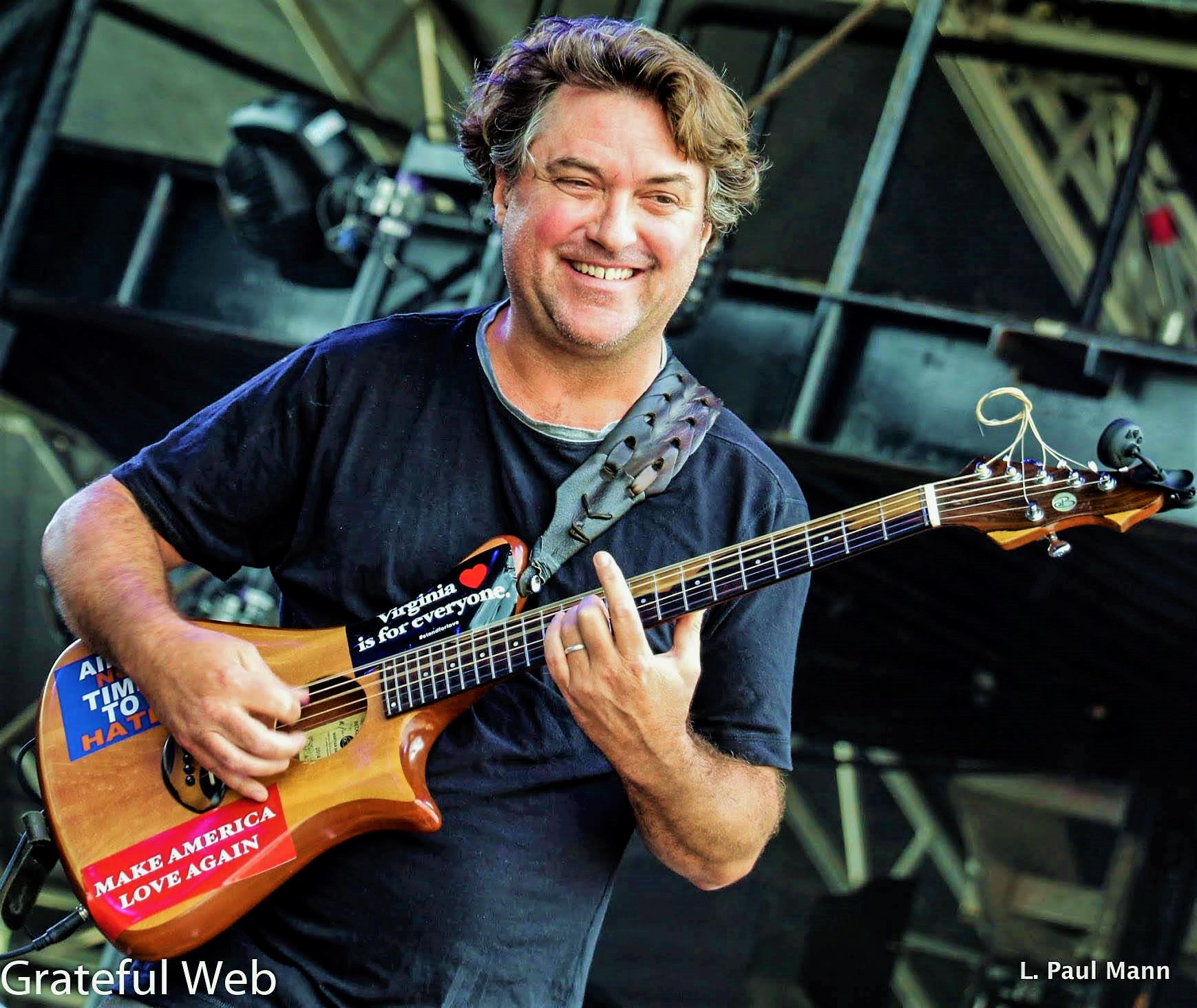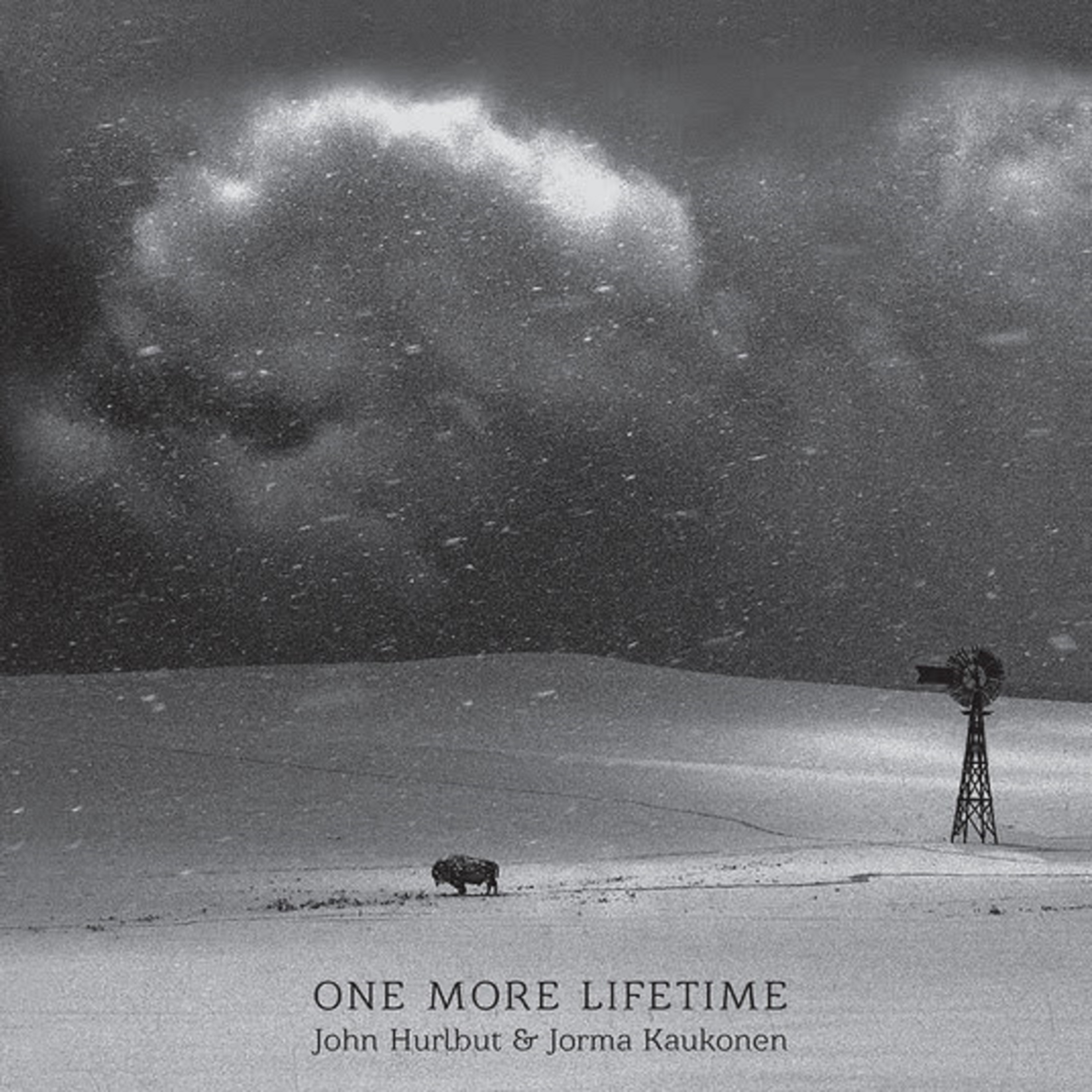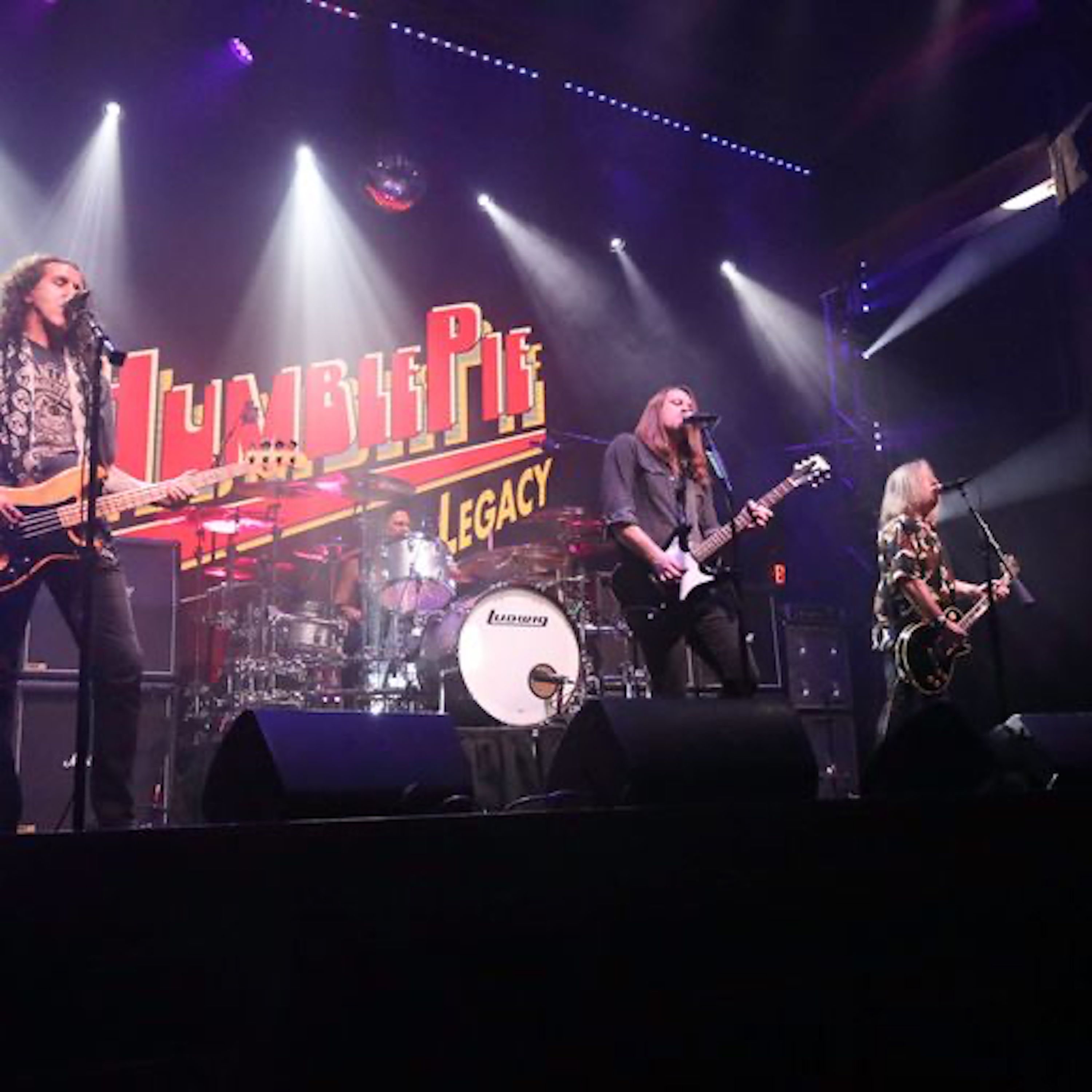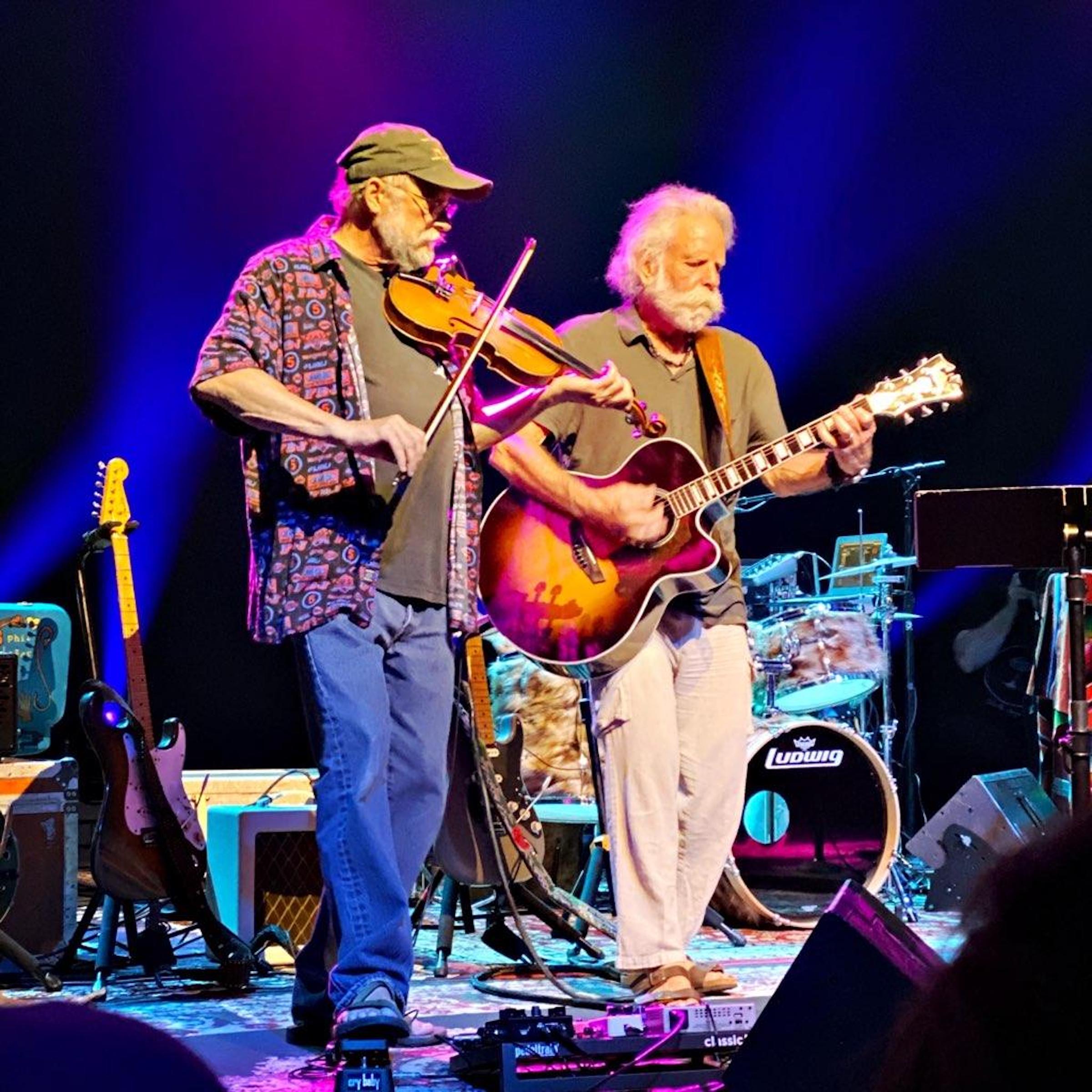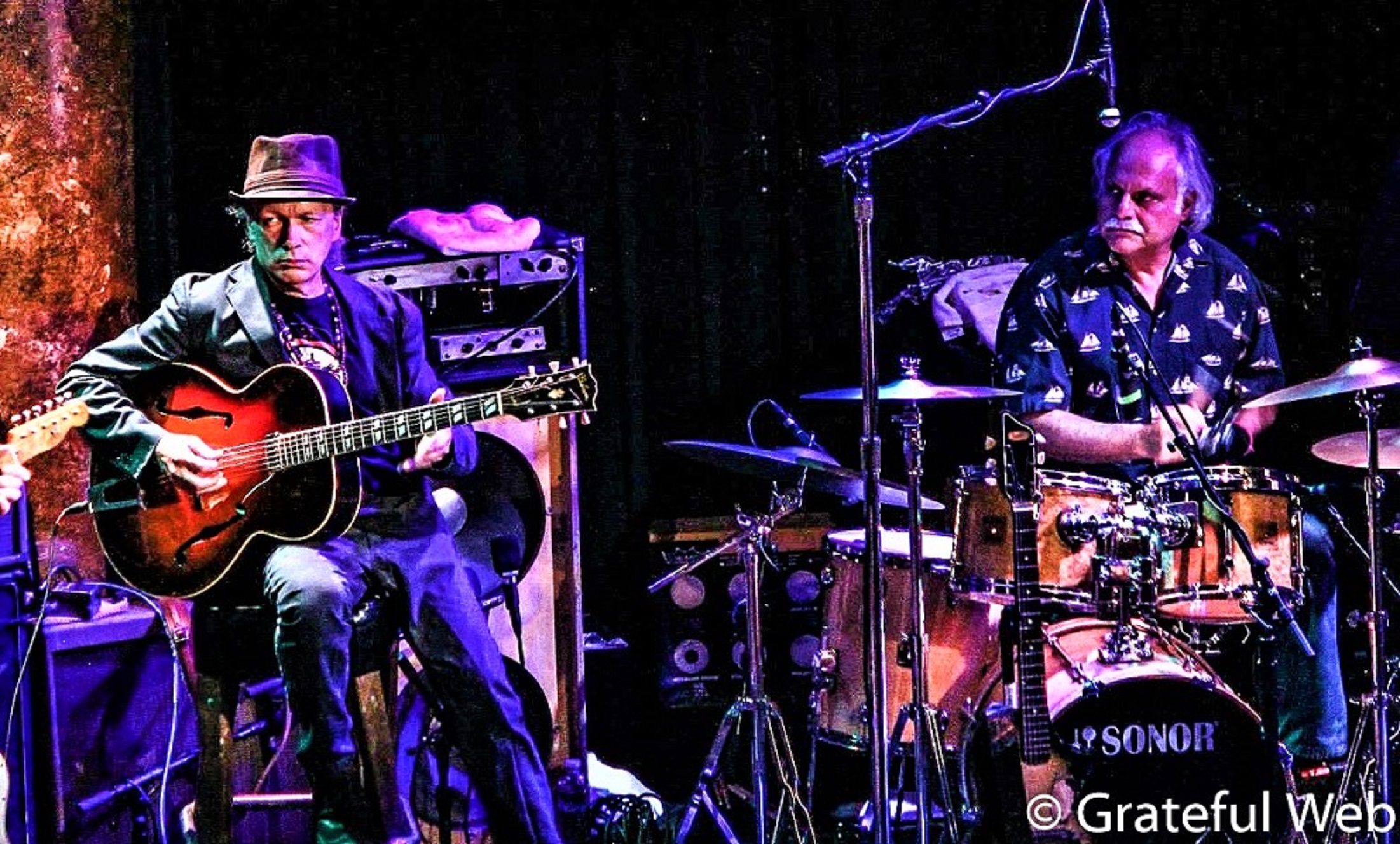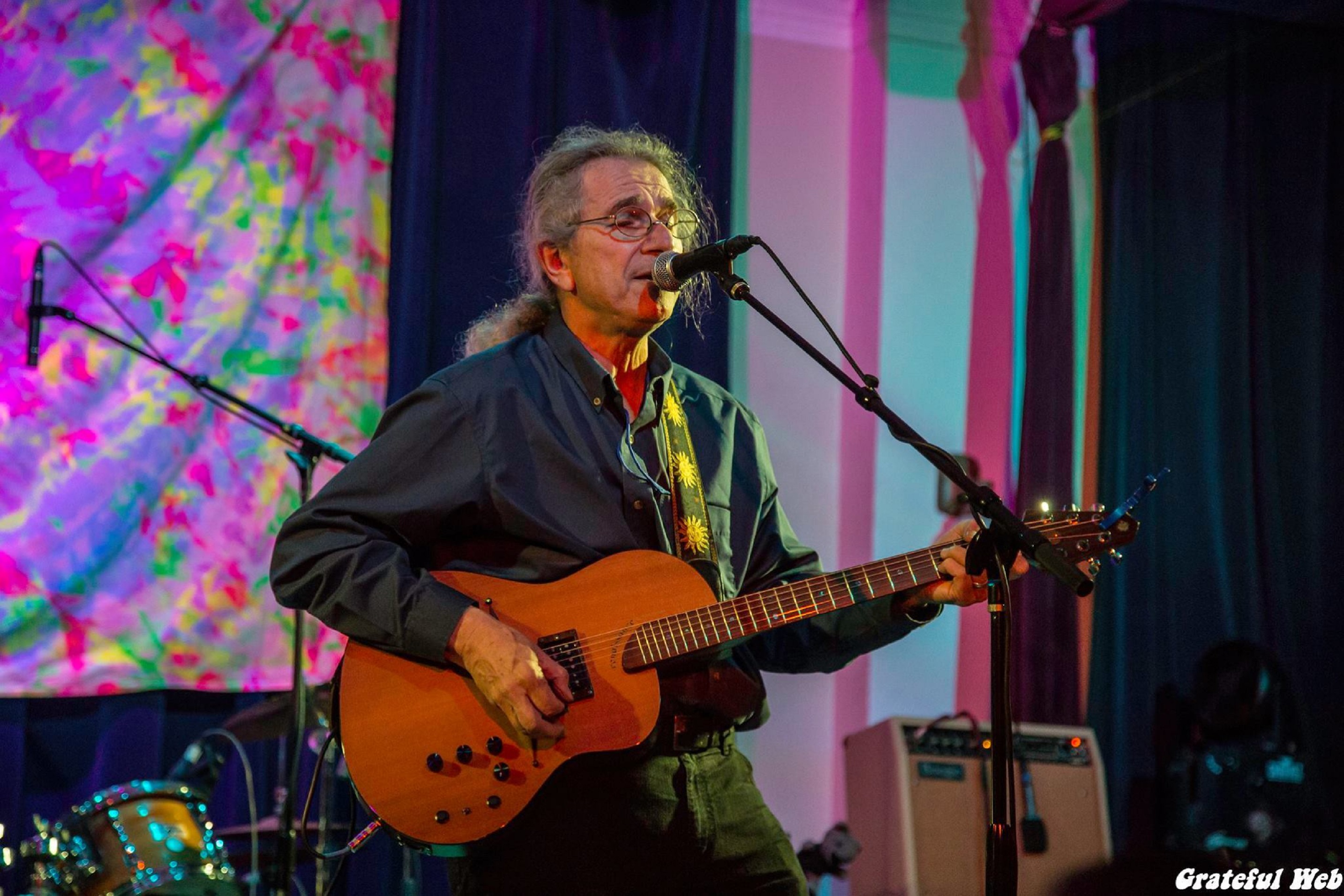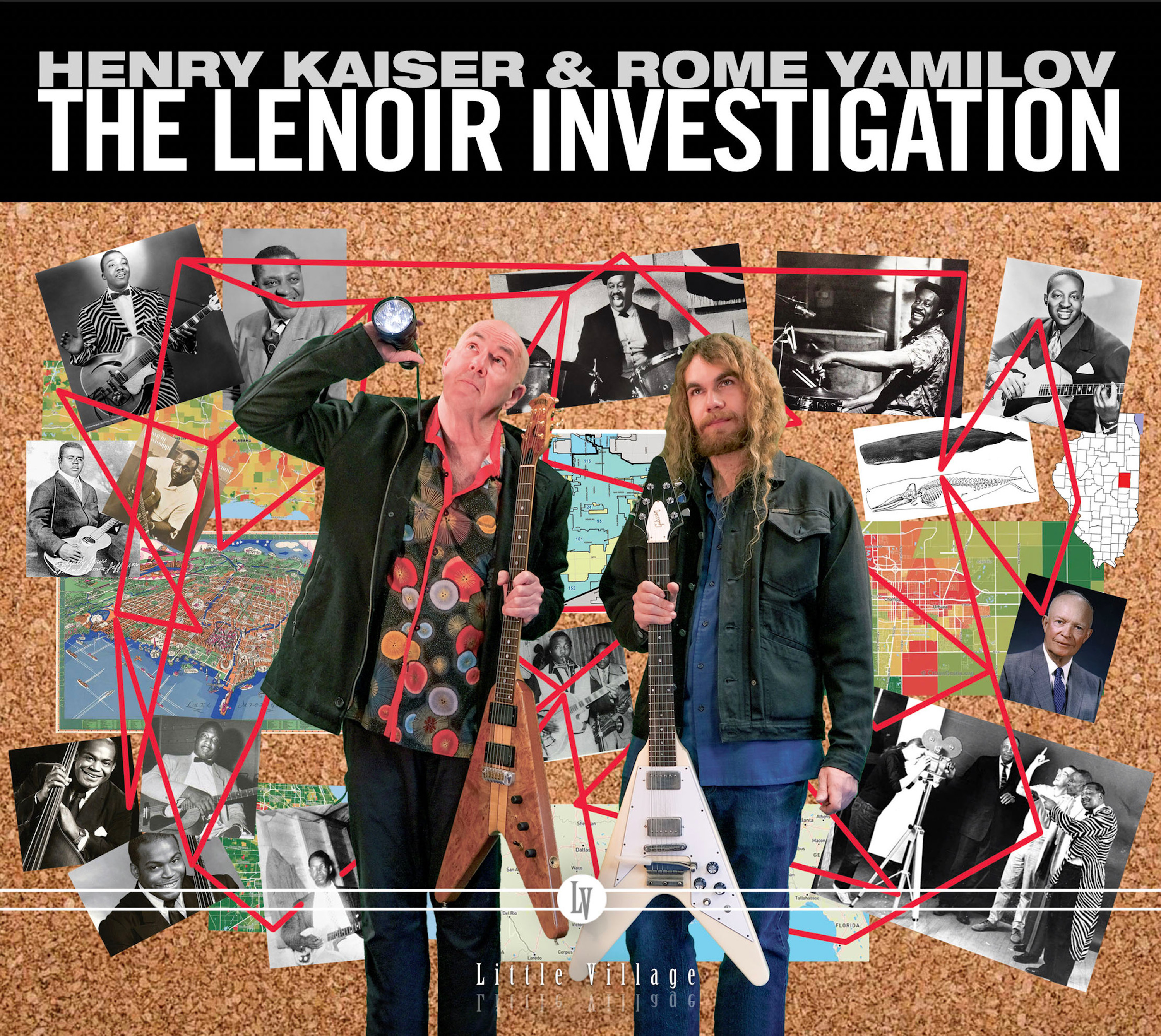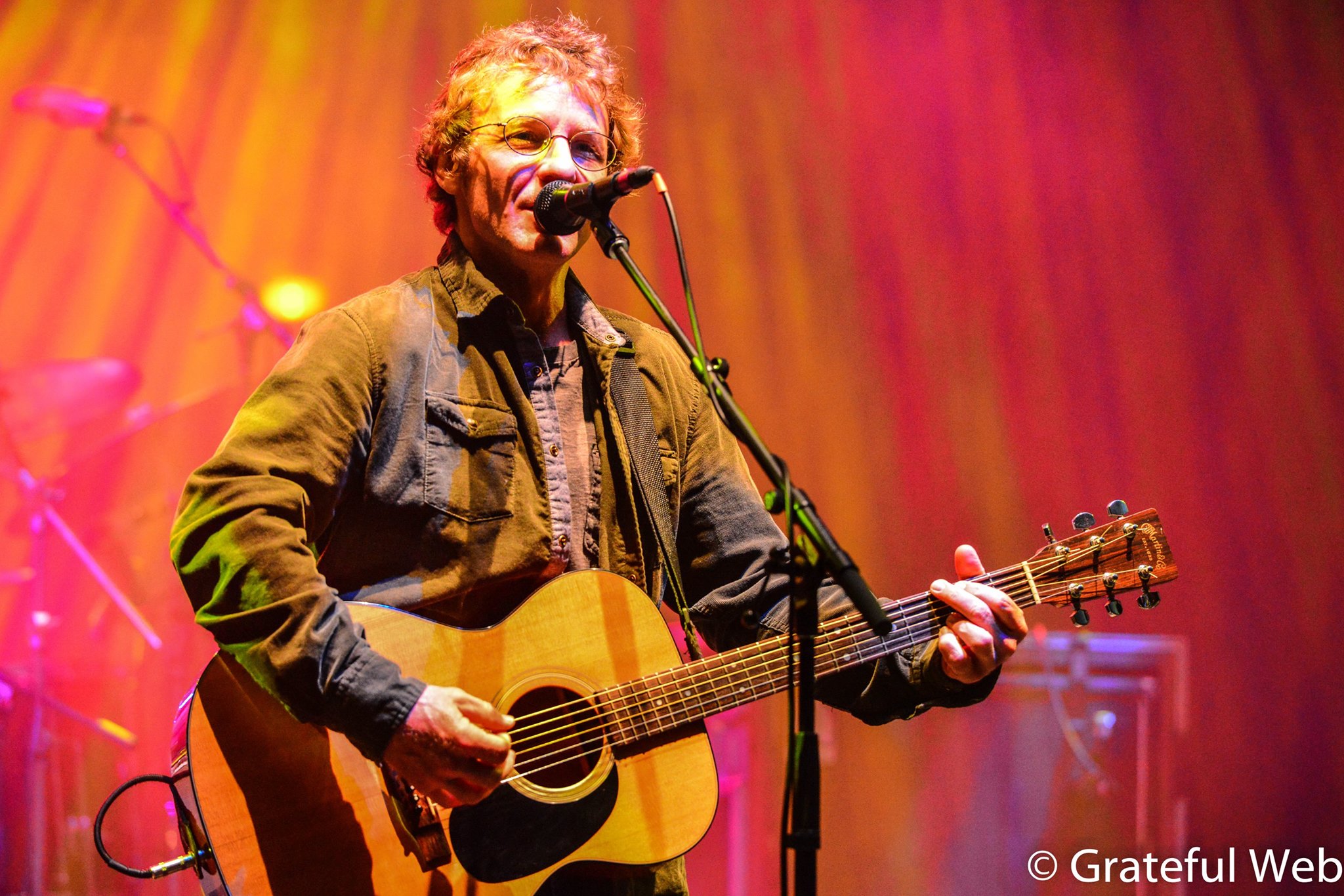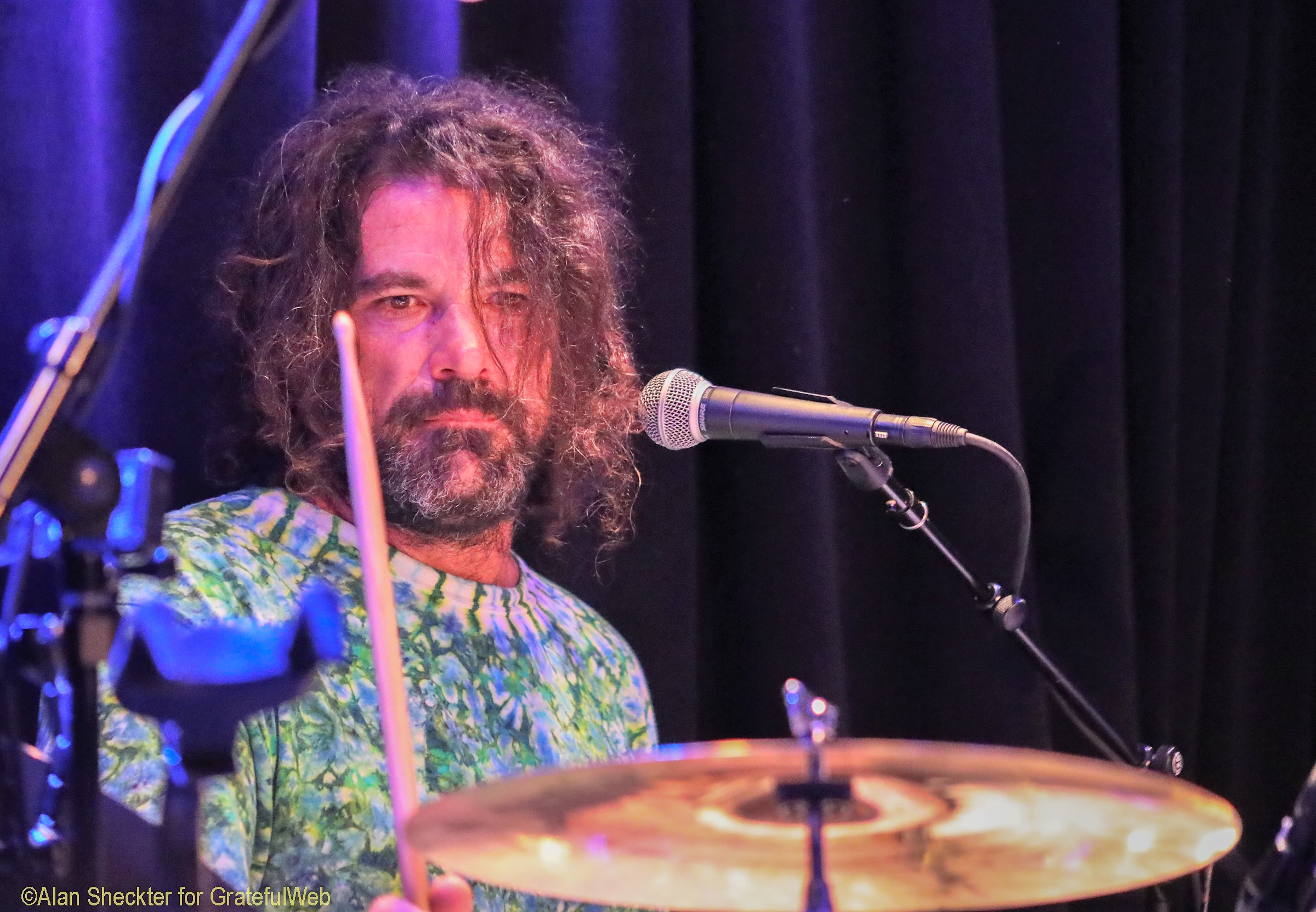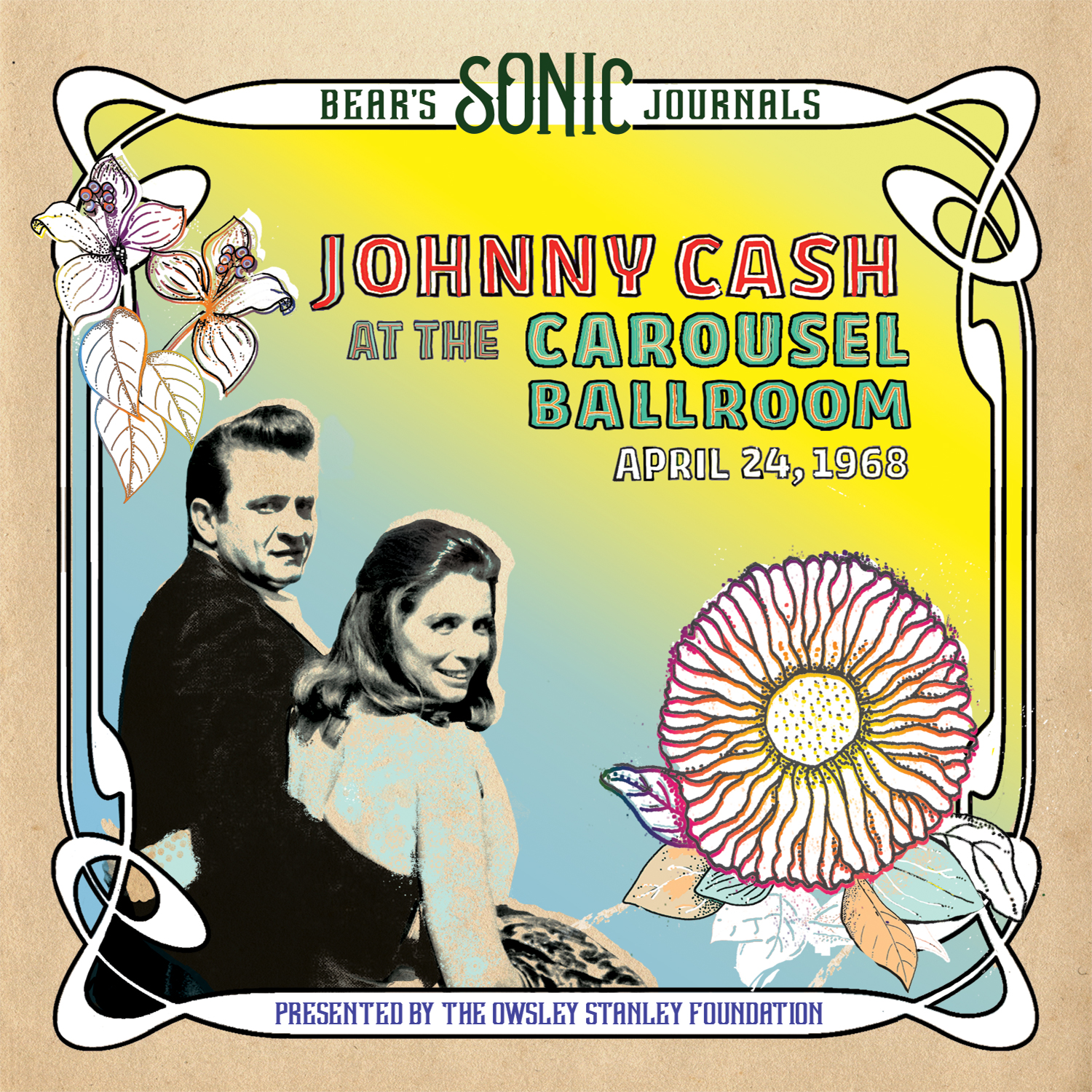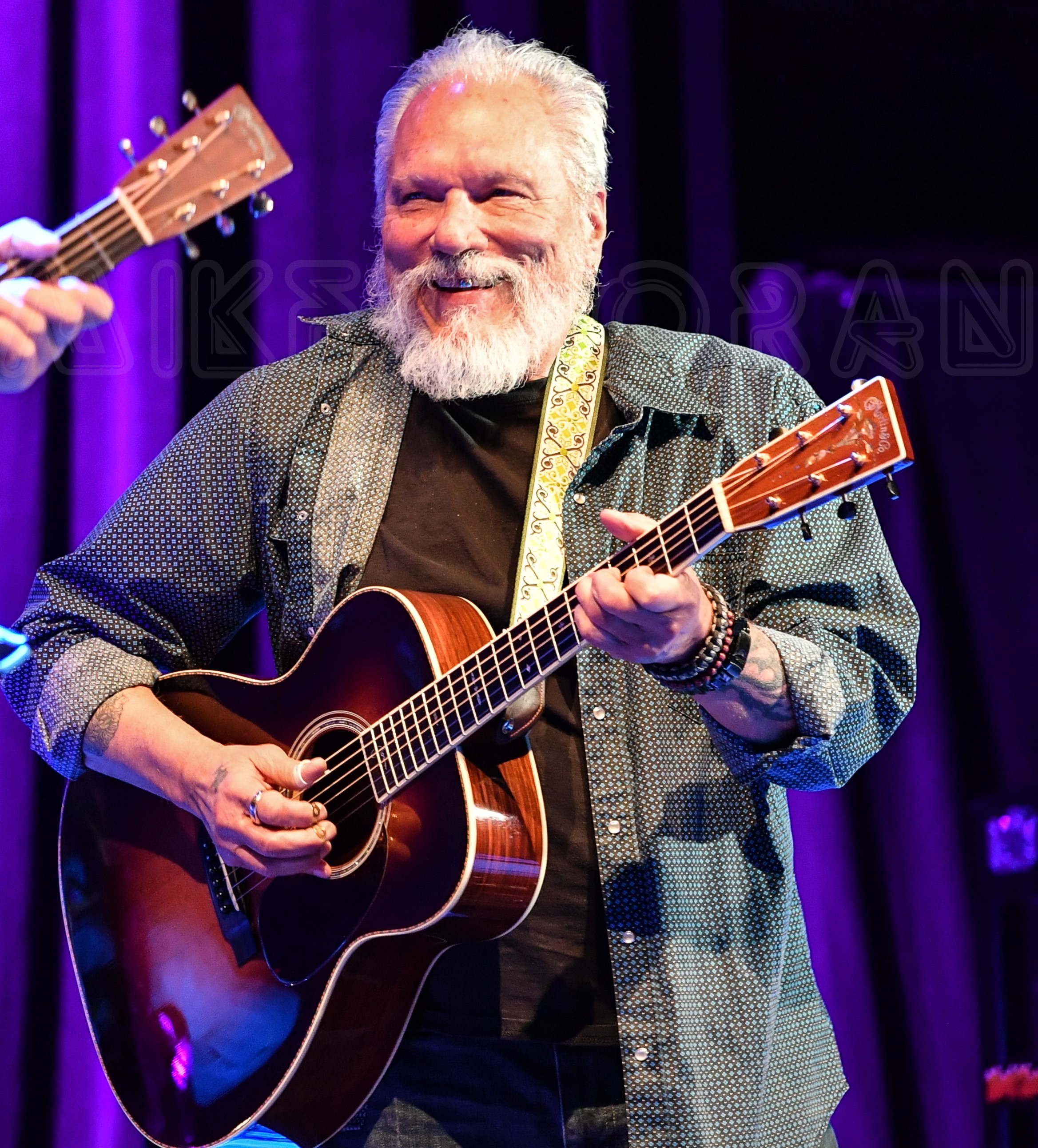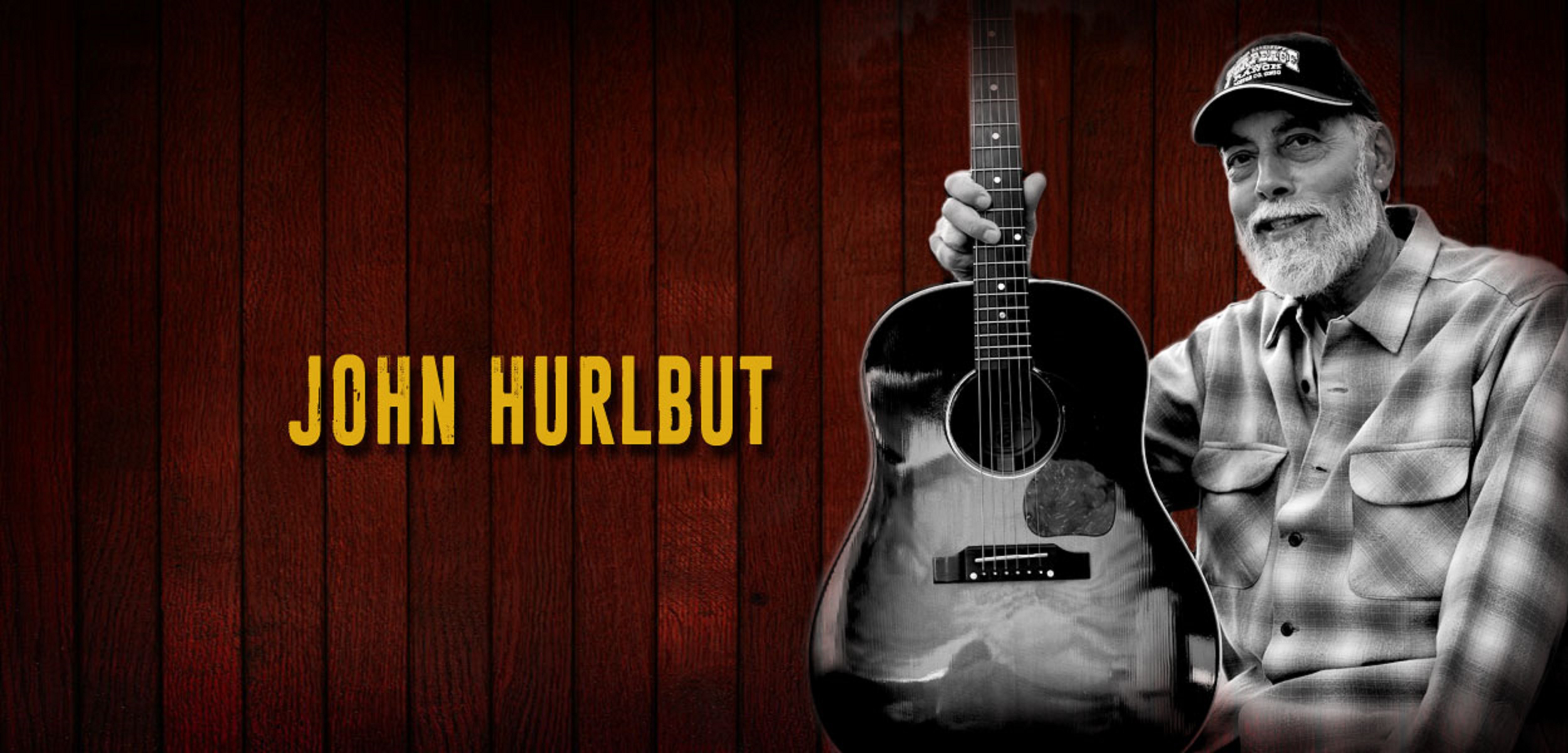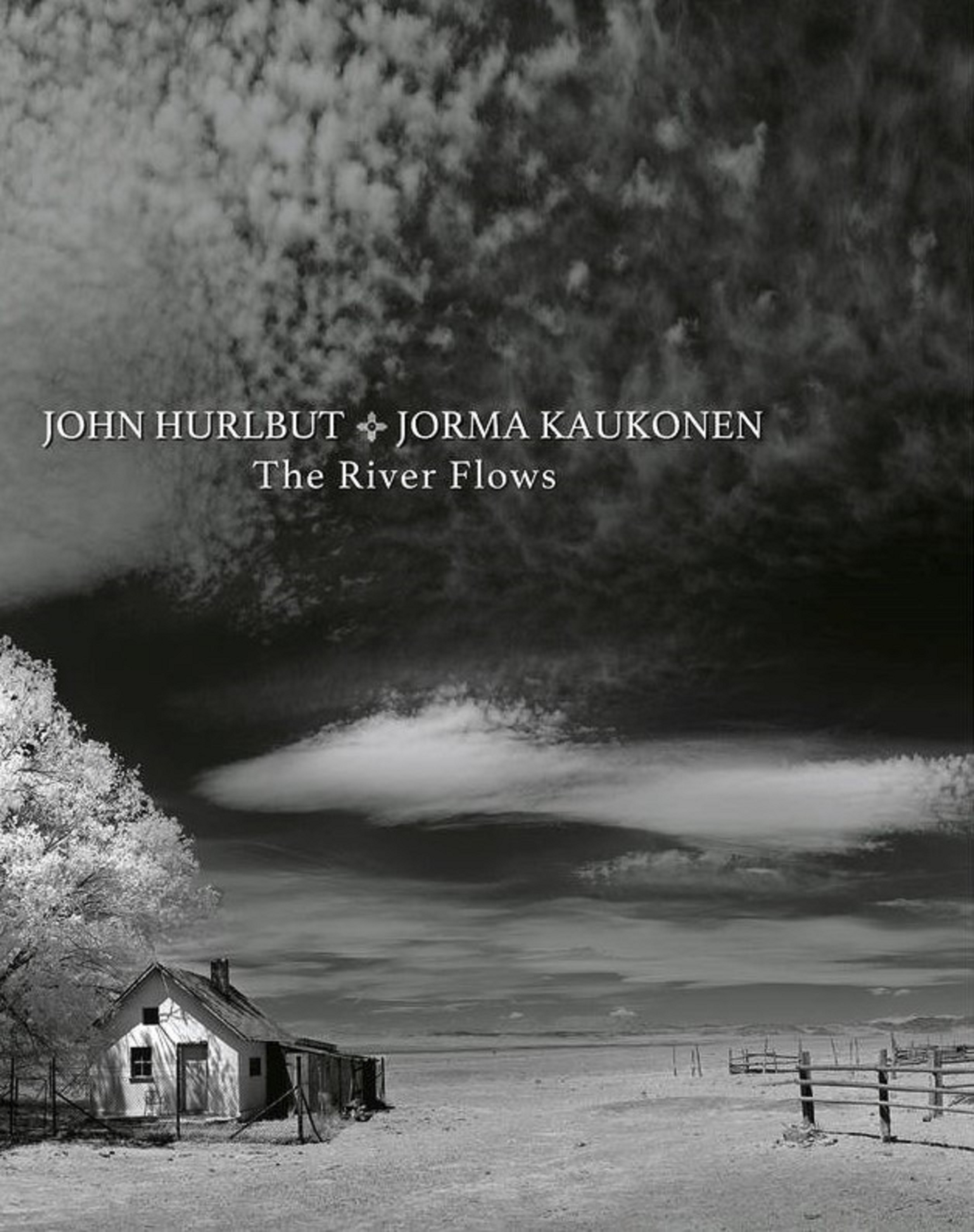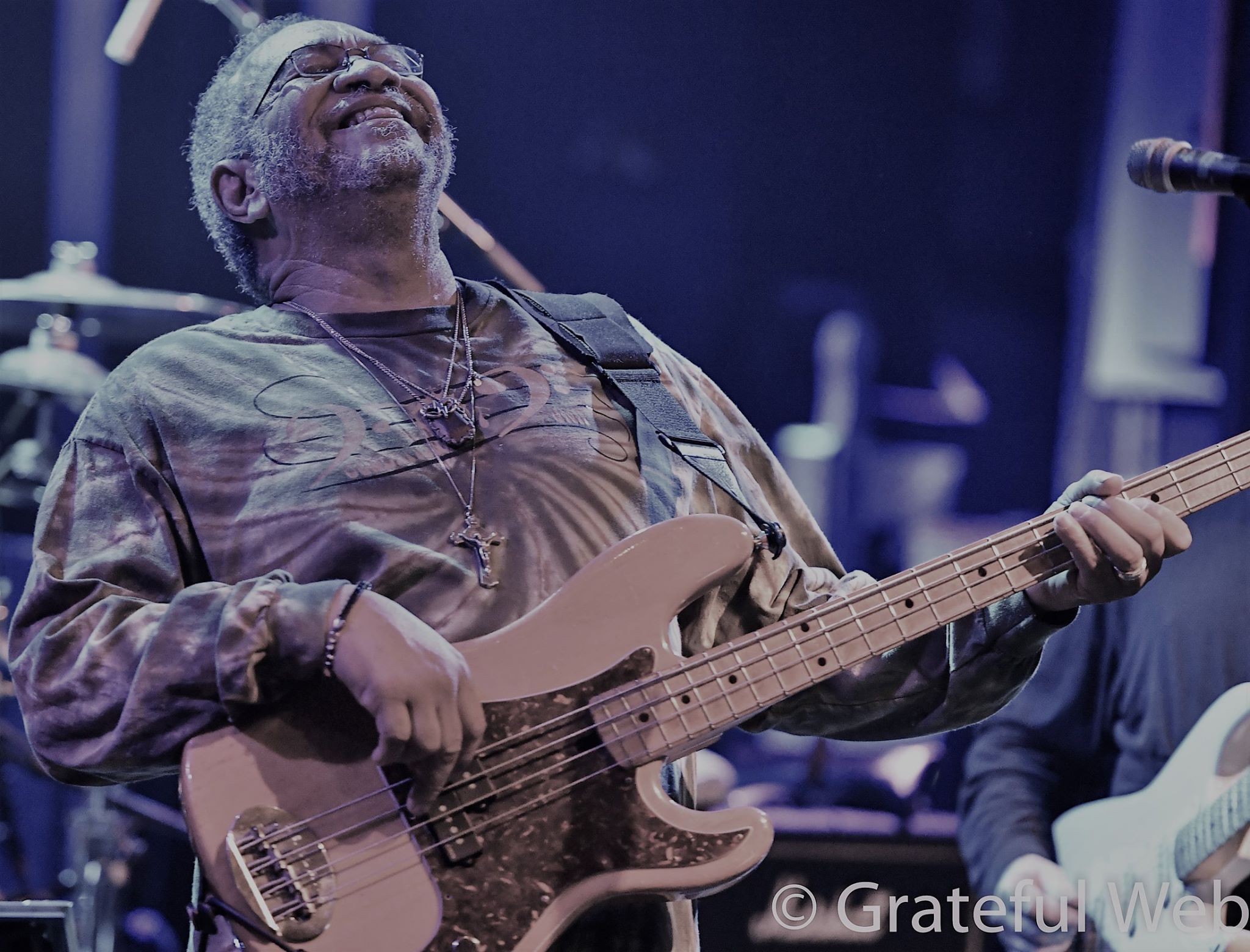While thankfulness is inherent to a Deadhead’s makeup, oftentimes, we don’t stop and fully let our gratitude overwhelm us. The Skull & Roses Music Festival in Ventura, California this April 2nd-5th will easily remedy that. Offering a most wonderful setting in a most sacred spot, Skull & Roses provides the perfect opportunity to allow our appreciation to soar. I sense the familiar thrill rise within me as I digest this year's lineup— Billy & the Kids, Oteil & Friends, Jeff Chimenti, Steve Kimock, and George Porter Jr. of Voodoo Dead, Melvin Seals & JGB, David Nelson, Tom Hamilton & Holly Bowling in Ghost Light, and of course, Keller Williams, among the many other phenomenal Dead genre musicians set to appear. In reading through the names, I revel in the days of old, as my excitement grows for the days to come. Knowing the love we share and the times we have created together, I can’t help but drift into the years and marvel, losing myself to the wonder of the ephemeral forces that brought the Dead family into being and which continues to sustain it. “The transitive power of the Grateful Dead is really the essence of it,” Jerry explained at one point. “It’s what it can do to your consciousness.” Thank you.
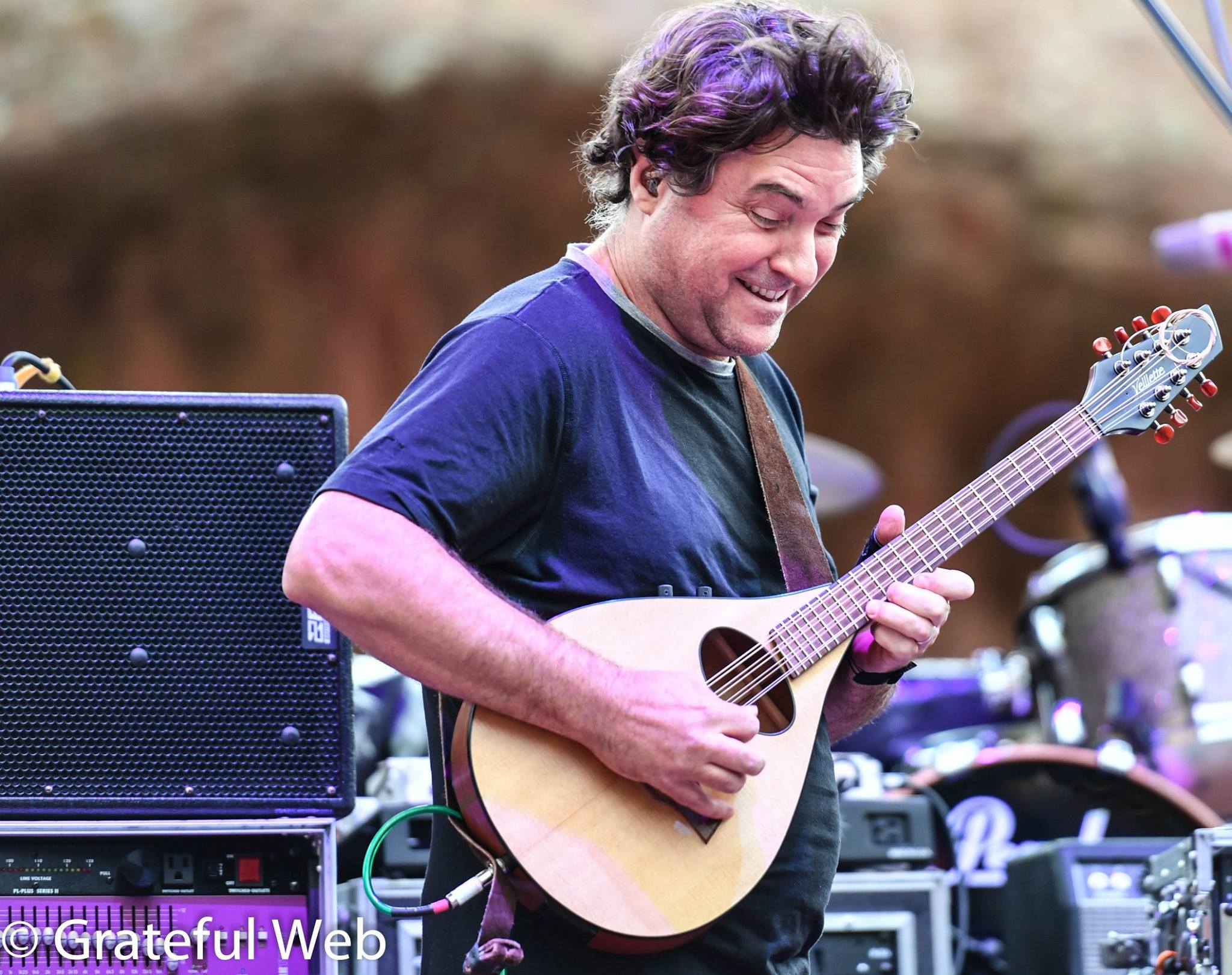
We cannot give it a name - “water bright as the sky from which it came” - yet all Deadheads intimately recognize the beauty of this force that moves us and know the joy we have in being apart. And while there is no doubt that the music is the catalyst by which we are nurtured, we all know it has always been more than the music. It’s an understanding, an embracement of each other, a respect for one another’s individuality which allows each of us to freely express ourselves from within the comfort of our own being. It’s acceptance. “Strangers stopping strangers just to shake their hand.” We are a culture unto our own by which all are welcome as we transcend the pettiness of mind and reach beyond ourselves on a musical wave into the deep unreal.
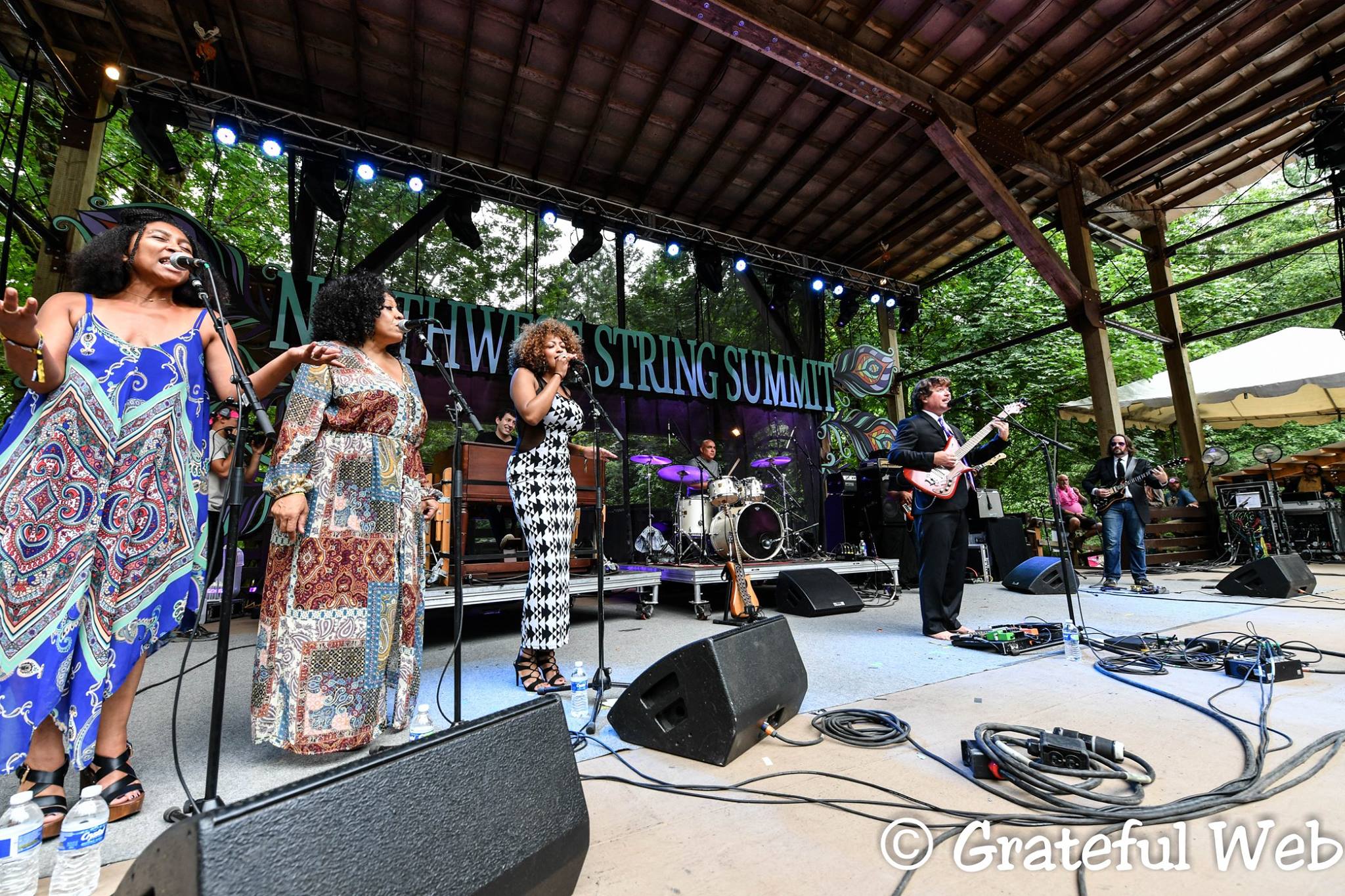
Like most Deadheads, when I think of the Grateful Dead, my mind floods with memories of wild & exotic shows, LSD expanded awareness, long hours on the road, bizarre and charismatic people, incredible art, and the warm comfort of hanging with those who “get it”—all interspersed with enlightened understandings of times gone by. Yet to think the Grateful Dead is something of the past is to admit one has slipped and fallen off the bus. Some might easily say the Dead have become larger than they ever were. Sure, there’s no recapturing the sixties or the mind-blowing experience of our first show. There will be no returning to the birth of the Dead or the newness of LSD. And of course, we’ll never be able to see Jerry or Keith or Pigpen or Brent again, hear fresh new words from Barlow or Hunter, but that doesn’t mean things are over— just evolved, as the Dead and family have always done, for new cells continue to add voice and song to the body. These moments and people of times gone by are the grains of sand that form the beach upon which we now play. And as Dead & Company pack huge venues with monstrous ticket sales, we celebrate all that the modern-day moniker, Grateful Dead, includes. We are a worldwide community of millions, in every walk of life, spanning over fifty years, and still growing today as each new generation of musician and fan realizes the beauty by which we arose, each blossoming in the light and becoming their own miraculous flowers of our garden.
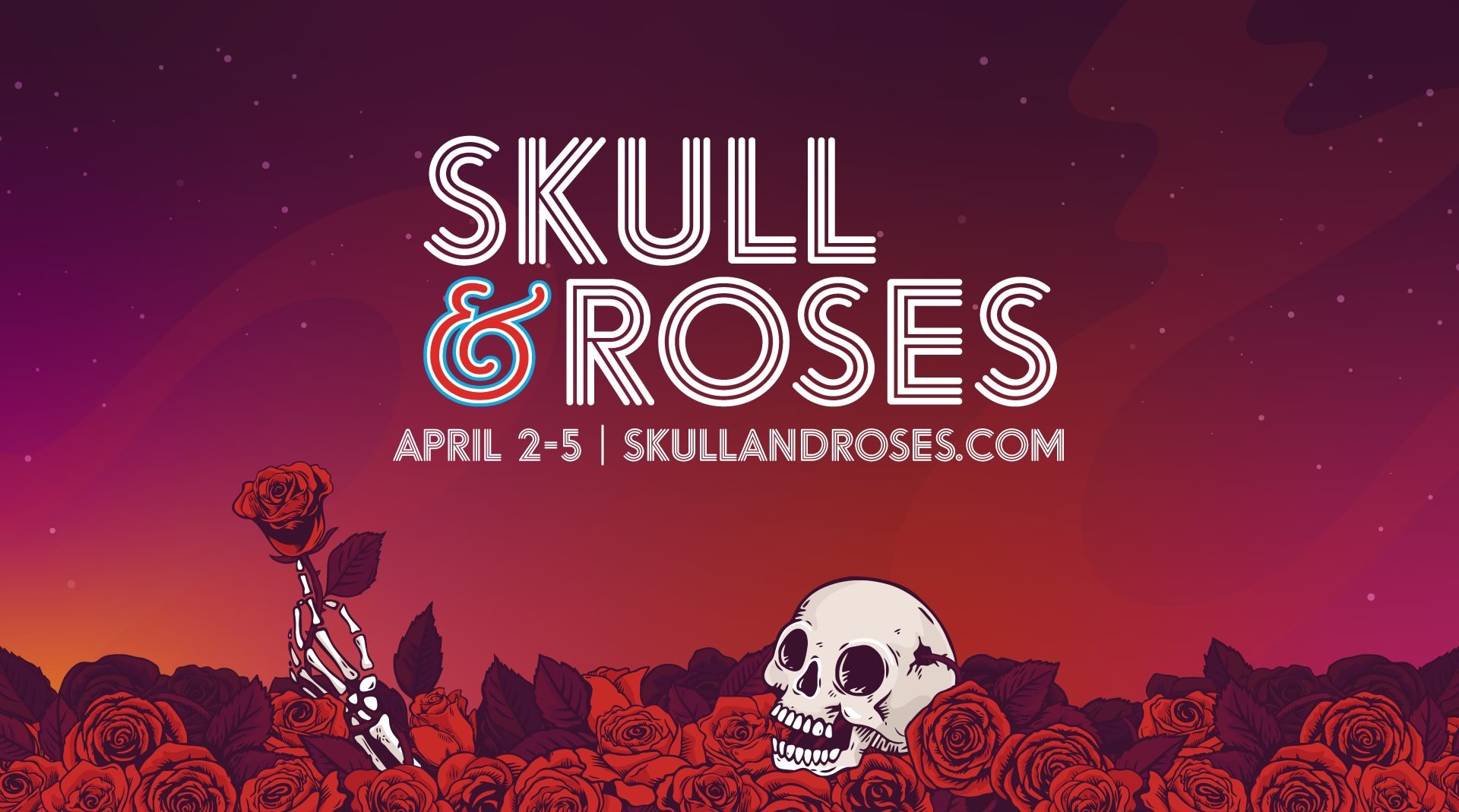
In celebration of this ongoing phenomenon, Skull & Roses, now in its fourth year, has quickly become the go-to festival for Deadheads. And since the Grateful Dead family has become entirely too large for any one band to handle, both long-standing, as well as the latest fan and musician, will flock to the stages and illuminate our message (and the insightful revelations therein) while creating a space for each of us to return to the source, to cheer those very same people that played in the parking lots of shows gone by, just as others play in the parking lots today.
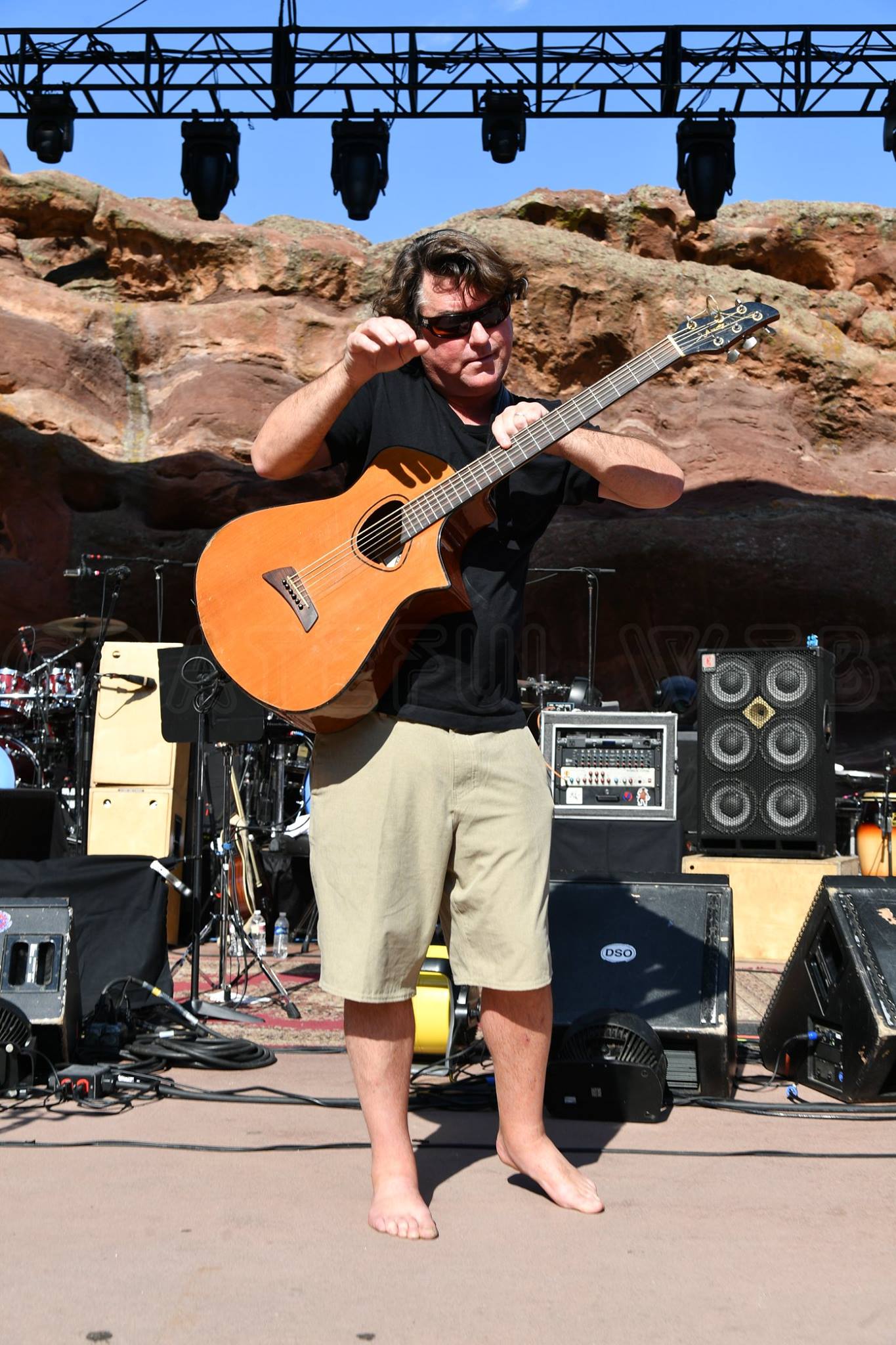
A wonderful embodiment of all things Dead, is Keller Williams, a man who loves changing and mixing genres as much as he does instruments and bandmates. Still yet to stop touring, Keller has gone from the parking lots of the late ’80s, early 90’s Dead shows, to the modern-day festivals and venues of today’s Deadhead and music connoisseur, bringing joy to both fan and musician alike. Excited about his appearance at the Skull & Roses Music Festival, Keller took time out of his busy schedule to chat with Grateful Web about the Grateful Dead and their inspiration in his life.
GW: Hey, Keller. How ya doing?
KW: I am in a car and we are going through the mountains, so if we get cut off, we can reconvene as the day goes on.
GW: Not a problem. Sounds like a pretty view. Where you at?
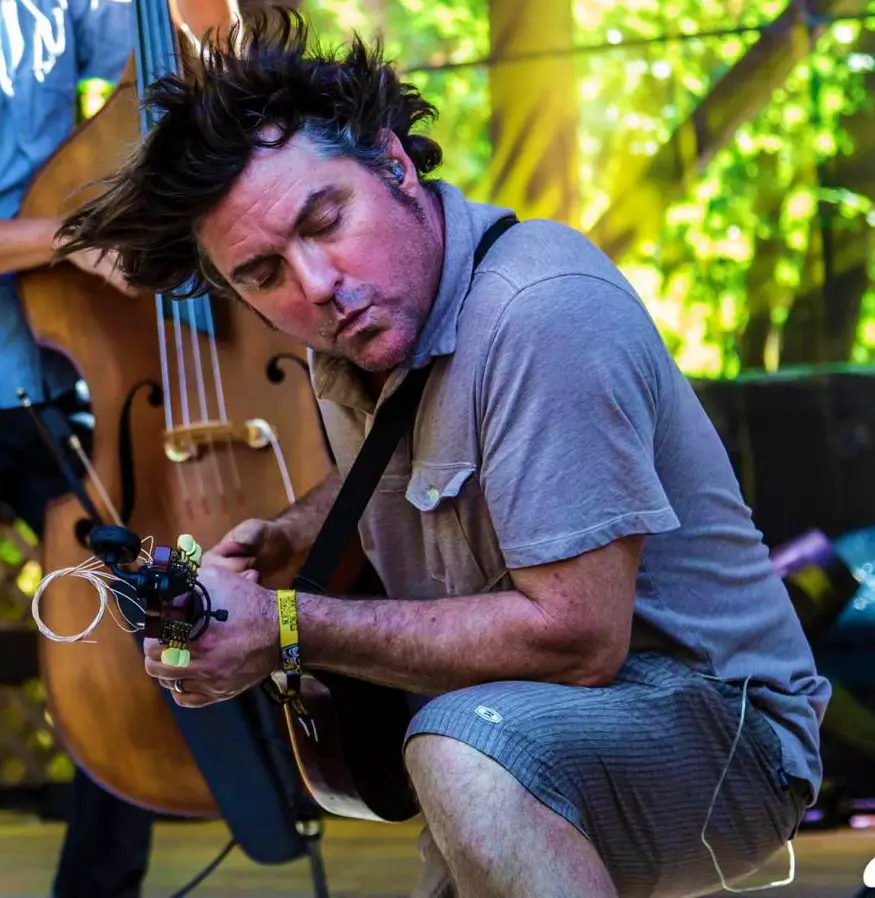
KW: I am in the backseat of my Toyota Tundra truck traveling through— is it Maryland? Where are we? [Laughter] Oh, we’re in Virginia now. Yeah, we’re in Virginia now, coming back from West Virginia.
GW: Well, all right. Sounds nice. Got your own driver now, do you?
KW: Well, you know, we don’t really drive from home a lot, a couple times a year. And when we do, we fill the truck up with merchandise, and my buddy, Scott Loeber, AKA Party Party - so nice you’ve got to say it twice - comes along and drives and flings merch. Party Party in the party party.
GW: Can we just do Party Squared? Or is that like . . .
KW: I think that— I think it’s better if it’s Party Party.
GW: [Laughter] Okay. Gotcha.
KW: Yeah.
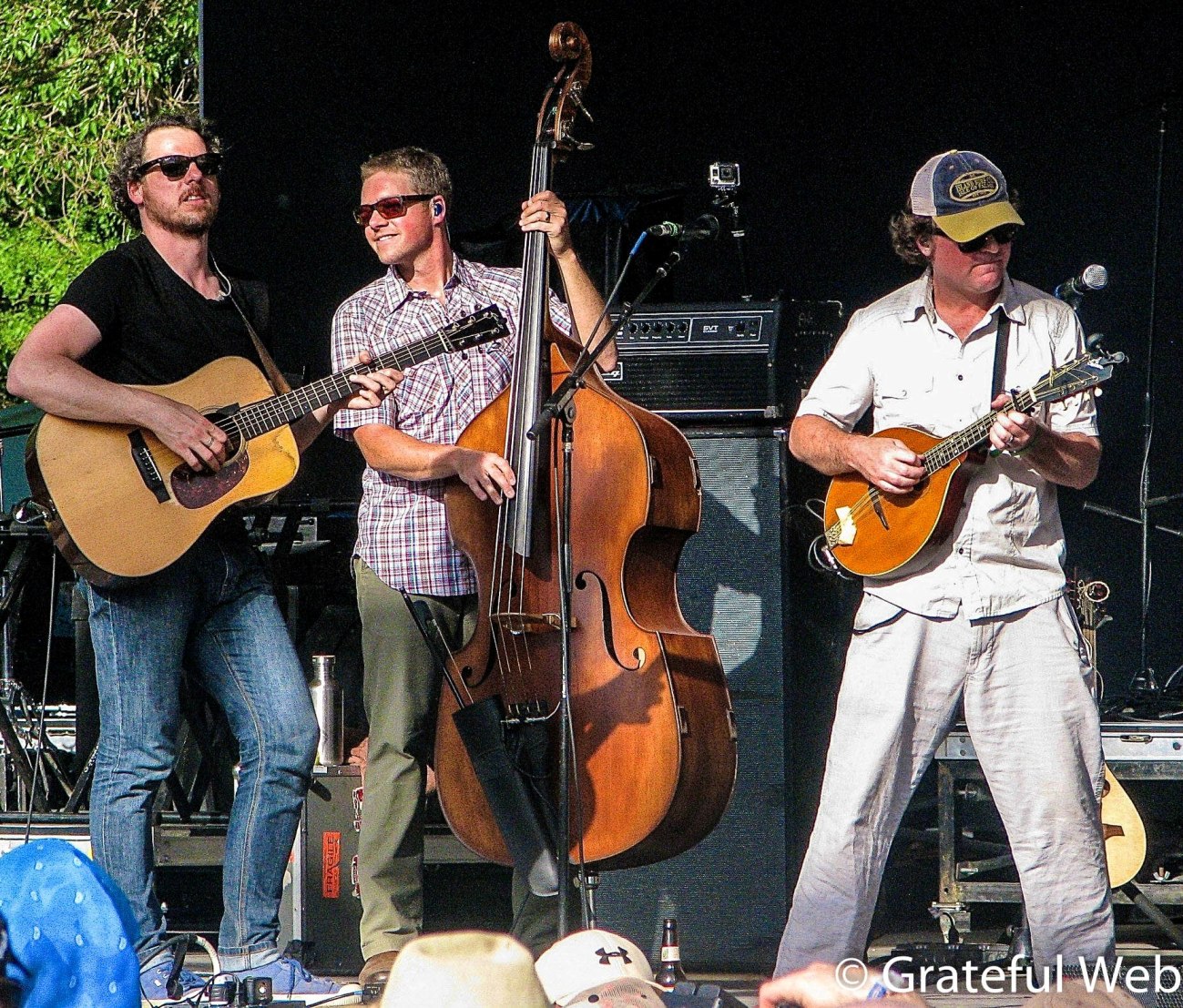
GW: The subject at hand seems to be Skull & Roses and the upcoming celebration of the Grateful Dead and Dead family. I figured with you performing in it this year, you had a lot of thanks to offer for the Dead, and I was wondering if you could share what the Grateful Dead means to you personally, and how they influenced your life.
KW: Sure, sure. Well, it’s more than just music. That’s where it started from the get-go, getting into the music. And then from there, going to my first show and seeing the family that exists in the parking lots and the camaraderie and the beauty that spills into that community. It really grabbed me. It was something I wasn’t prepared for at an early age - I guess 17 was my first show - and so from there, it just um, well . . . my late teens and early twenties, I definitely would make as much money as I could, and then quit the job and go see ten shows, and come back and get another job. It wasn’t a constant thing for me, but it was definitely very, very prominent and gave me a goal to make money to go spend it. [Chuckles]
GW: [Laughter]
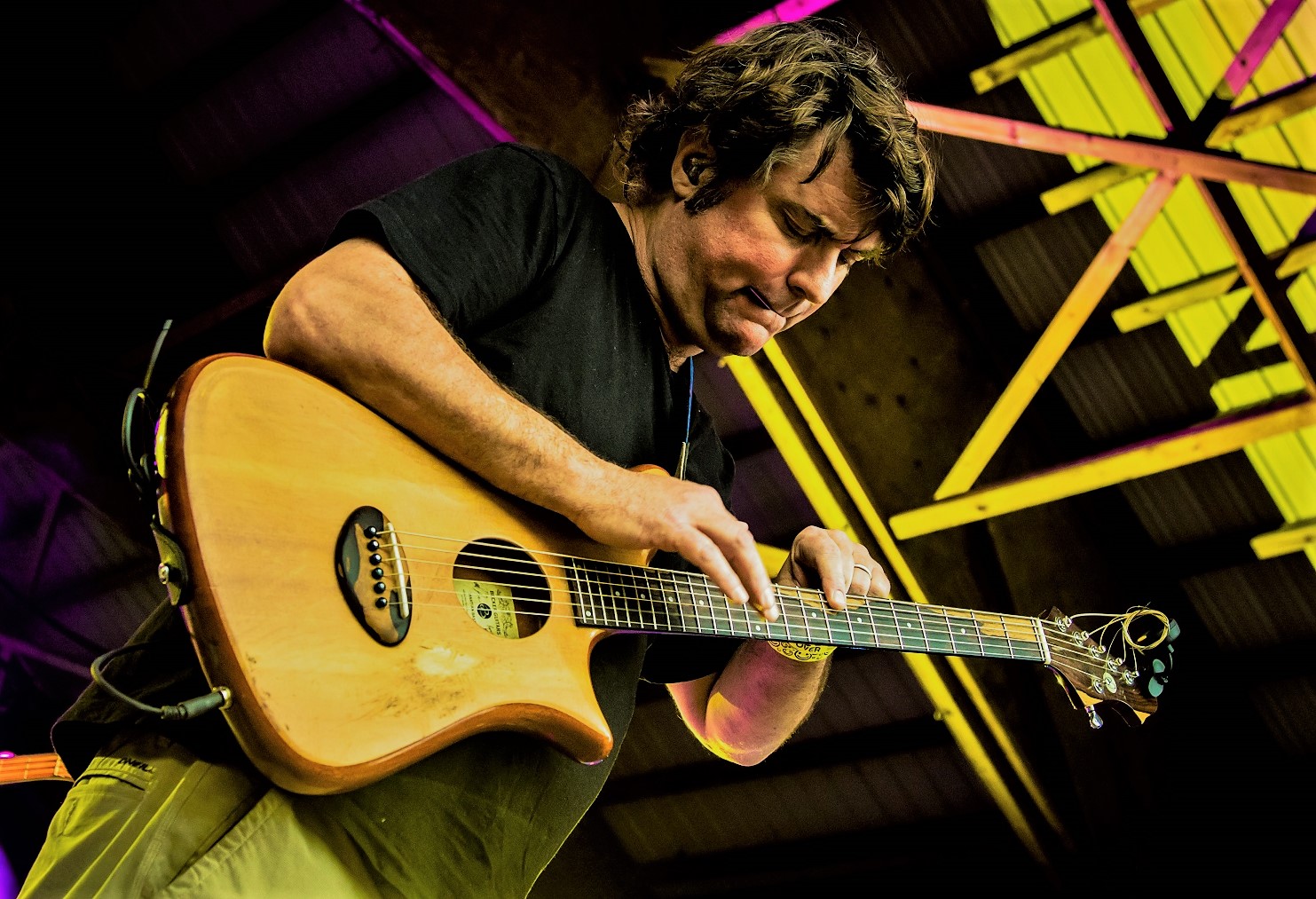
KW: I guess by doing that I definitely learned how to travel thrifty. There’s often times where I was pushing a car into, like, a stadium parking lot because we had been in line so long, and the car was overheating, and you got to turn on the heat to bring the heat off your engine. And so it was just more fun to push than to sit in the car with the heat on in the summer. And how to sense truck stops and rest areas, and a way to safely sleep in your vehicle. I definitely took a lot of that from my experience with the Grateful Dead and incorporated it into my own life. It was probably around ’93 that I stopped really focusing on Grateful Dead shows and started doing my own shows. Learning what I learned from the Grateful Dead tour, definitely helped me. Like ’93 through 2002, I guess, that era was very much traveling all the time and staying in the vehicle a lot. That’s one way the Grateful Dead has affected my life, but also just the amazing songbook that’s the connection I’ve made through those songs with so many different people. I definitely owe a lot to the Grateful Dead, for sure.
GW: That’s interesting. I know how we all feel that way. We each went to our first show, and I think we all had that same feeling of, “Wow! I had no idea something like this was going on. I had no idea that this was even out here.”
KW: Right. Yep, yep.
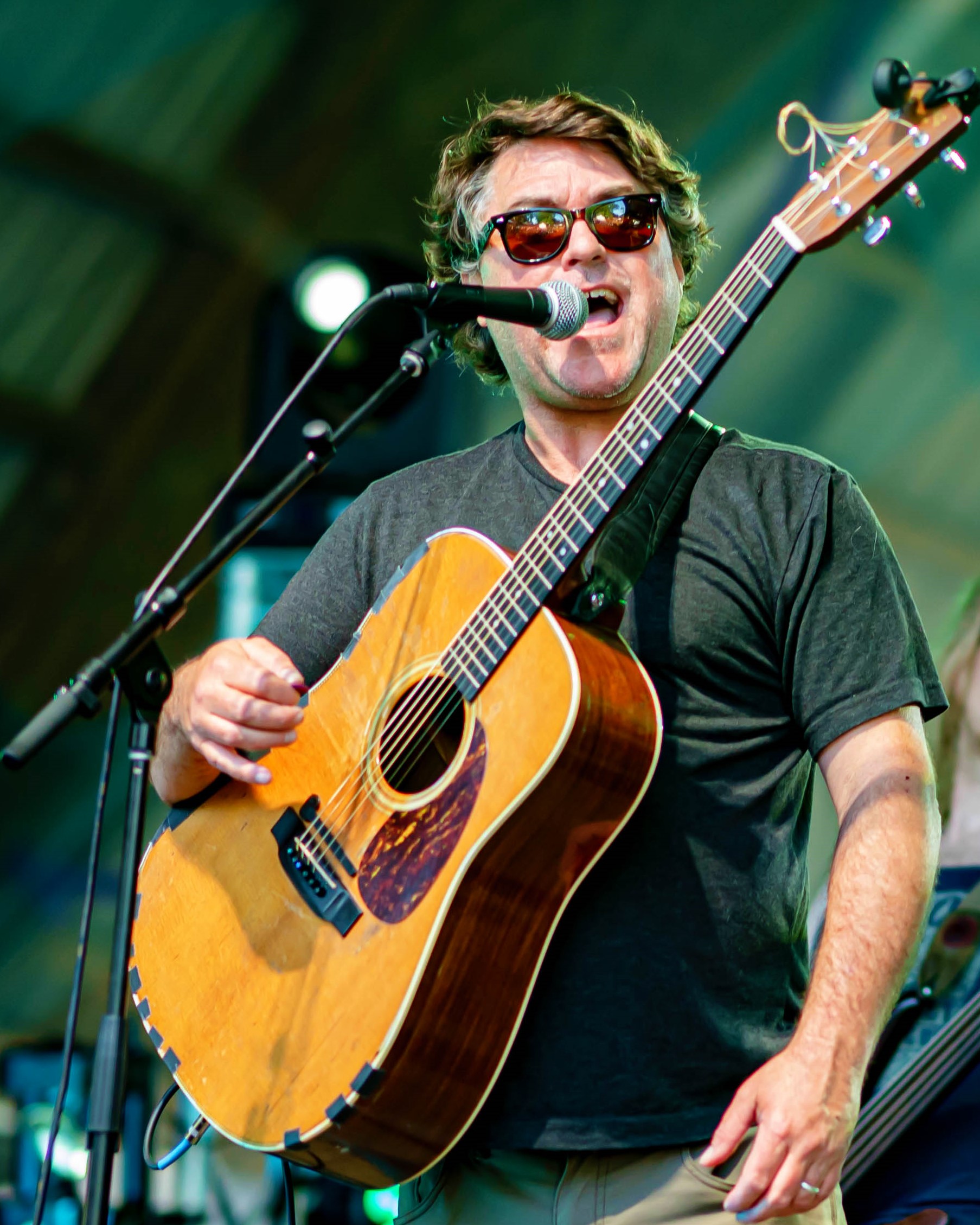
GW: It’s hard to articulate exactly what it was that I felt and saw. Do you have a way of expressing what that significant moment or awakening was for you?
KW: Let’s see. I think it was the sense of . . . kind of stepping into a family, so to speak. And it definitely embraced me. It made me long for it. And the moments I wasn’t at shows, I was listening to the music, and it takes you right back, you know?
GW: Yeah, yeah I do.
KW: I can’t quite really pinpoint exactly the feeling that I felt at the first one - what really got me into it - that was maybe 1987. [Chuckles] Can’t really remember yesterday.
GW: [Laughter] What was your first show?
KW: Capitol. The Cap Center in Landover, Maryland.
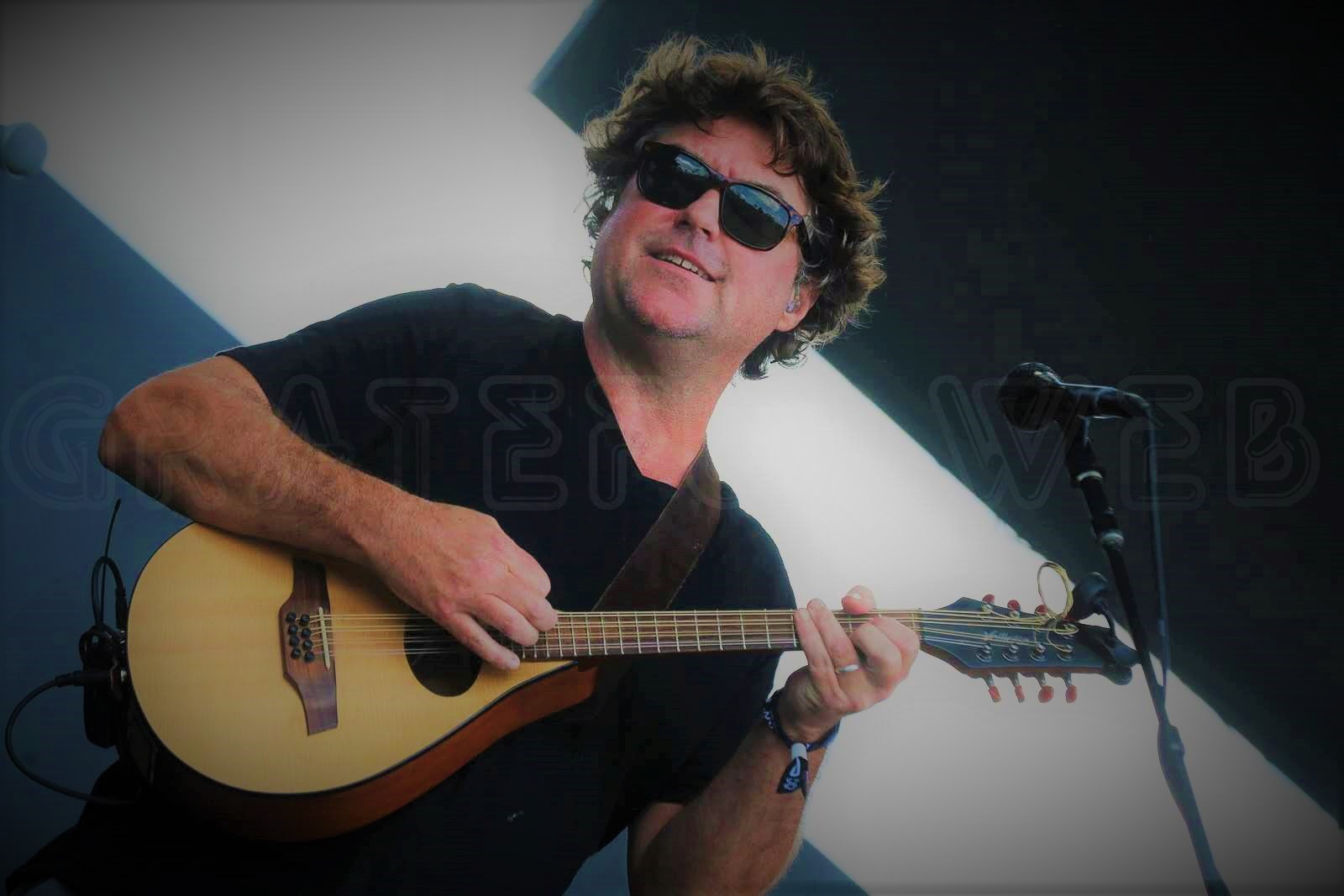
GW: That’s a good one.
KW: Yeah, the Ripple breakdown, I guess. That’s how I remember it.
GW: Did you spend a lot of time during that period playing music in the parking lot with people, sitting around campfires, guitar in hand?
KW: I definitely was playing. I started playing music, I guess around the age - well, I was pretending to play my whole life since I could walk - but started to kind of really dive into chords about age 12. So by age seventeen I was definitely just walking around and looking for circles of guitars and just joining in. Later on, through the next couple of years, I’d kind of stand on the outside of the circle and listen before you join it. [Laughter] Sometimes it’s tricky, it can be really tricky. Sometimes it’s better to walk on and maybe look for another circle than it is to join everyone. But definitely had some great moments in the parking lot playing music, for sure. I think it wasn’t until later that I actually had a motor home, it was like ’97, ’98, but boy I wish I had one back then, that’s for sure.
GW: Yeah, I’m with you there. I was in a little pickup truck, so it was kind of the same for me.
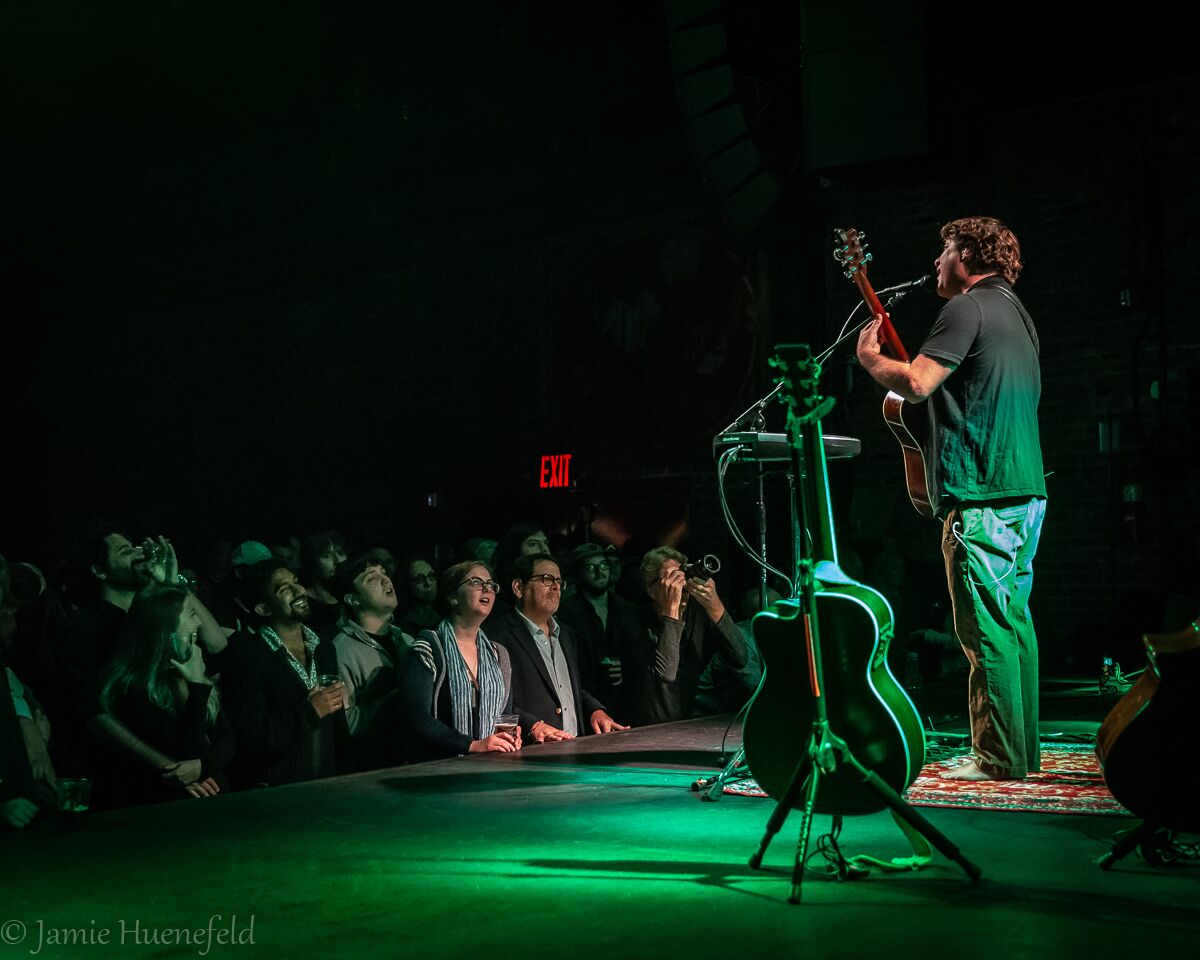
KW: Yeah.
GW: It’s interesting, because when I think of the parking lot times and look at today’s bubble of musicians that you’re obviously intricately a part of, it’s almost as if we carried that parking lot on to the stages - that we’ve created this bubble of amazing musicians touring around the United States going from festival to festival - like the parking lot kept going. Being an insider, do you feel that kind of sense of things?
KW: I think that’s why you are a writer because that’s a really great analogy. I’ve never thought of it like that, the parking lot continues on stages, the bands playing this music. Yeah, it’s perfect. That’s great. You summed it up.
GW: Well, um, okay. It kind of feels that way. I toured from ’84 through ’88 and had that kind of feeling myself, where we all wanted to keep it going. And the Dead family kept getting bigger and bigger, where we’ve gotten to this point now where one band can’t satisfy us all. Would there be this kind of scene if the Dead hadn’t existed? Would there be all these festivals, would there be just this big group of phenomenal musicians playing together like this?
KW: Well, there’s always the bluegrass scene, and they were definitely doing festivals long before there were festivals. So I think the festival scene would definitely exist without the Grateful Dead, but it would definitely suck now if they never existed. [Chuckles] For sure. I think it’s a huge influence over, uh, especially the jam scene. For example, there’s probably twenty-five, maybe thirty guys that know the same twenty Grateful Dead songs that I’ve arranged in the bluegrass format. They can be interchangeable, and that’s a really beautiful thing too, just like common knowledge, and reaching out to your friends. Never really playing this music together - because everyone’s in their own world doing their own thing - rather than coming together, running ‘em backstage and playing ‘em on stage. I’ve been very lucky to get together with a lot of different bands, like full bands, and come in as a unit, and I kind of front that. And it works out really great. And that’s what’s happening at Skull & Roses with the Hillbenders out of Missouri coming in and doing a set of Grateful Dead songs in the Bluegrass fashion to my arrangements.
GW: You did the Pettygrass stuff with them as well.
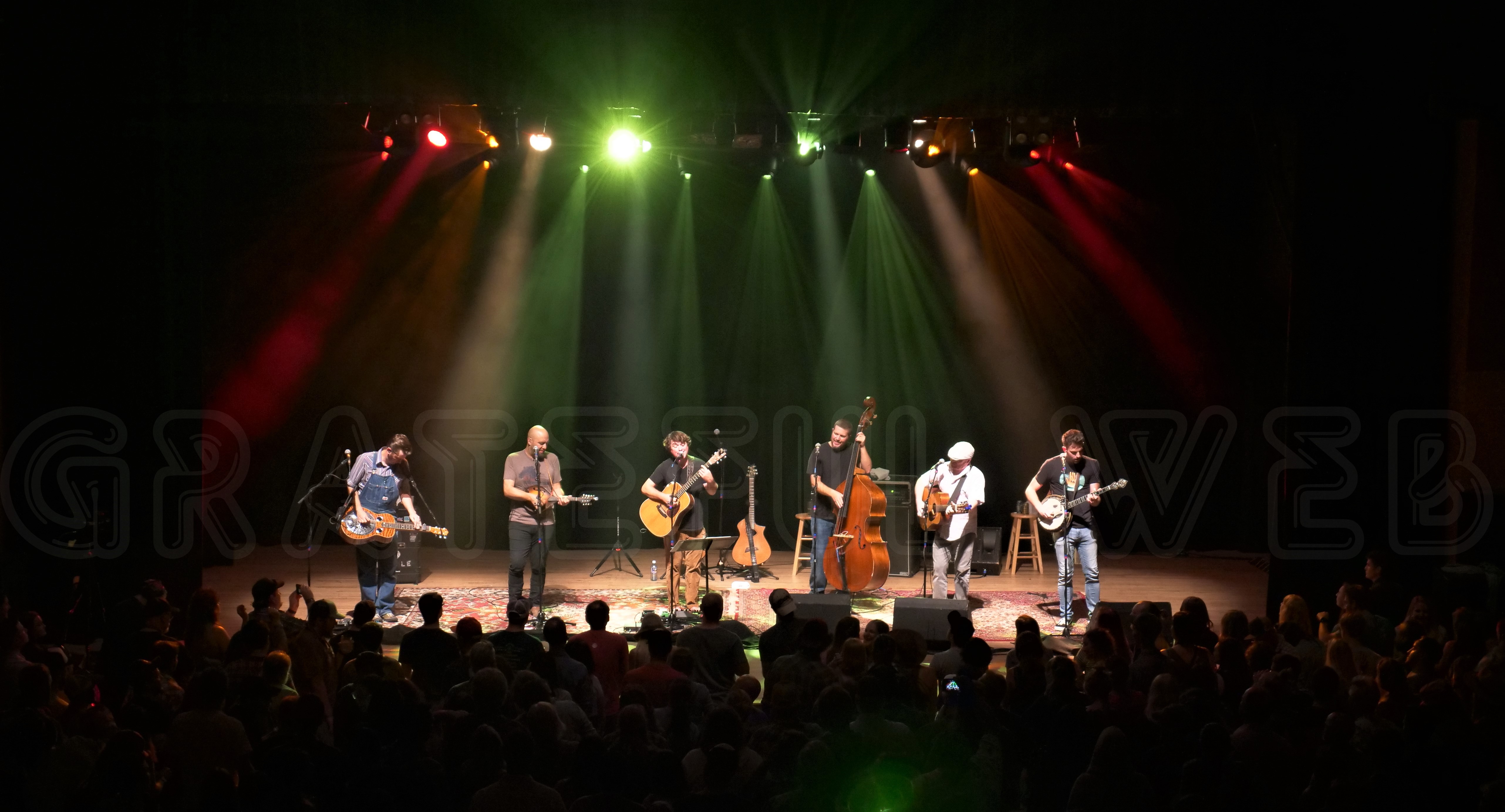
KW: Mm-hmm, yep. And we’ve done a couple of Grateful Grass shows with them too. And what’s really great is they’re— it’s still fresh to them. These are songs that they have known, that they’ve been playing, but then I come in and change the keys and take liberties. And so it’s very, very fresh for them, which brings that certain kind of energy to the stage.
GW: Definitely. Speaking of energy, going from a seventeen-year-old in the parking lot to standing on stage with Bob Weir. How do you describe that?
KW: Well, at the time it was indescribable. You know, it was definitely a full-circle thing. Being on stage with him was a total trip . . . like a complete, hallucinating trip, you know, an LSD trip type of thing, but no LSD around. What was even more mind-blowing was being in like a production office, just me and him rehearsing. And that was like . . . I’ll never forget that. And I’m singing harmonies, or playing these old songs, that I know I’m playing with Bob Weir. I was always in the hallways during the shows, standing by the speakers - back in the day when they had speakers in the hallways - and everyone was free to meet and do all kinds of expressive dancing. I was out there, back behind the stage where there was more room - like in a coliseum with the whole thing being open - I’d go behind the stage. So then all the sudden, I’m in this production office with Bob Weir playing these songs, and that was . . . that really blew my mind.
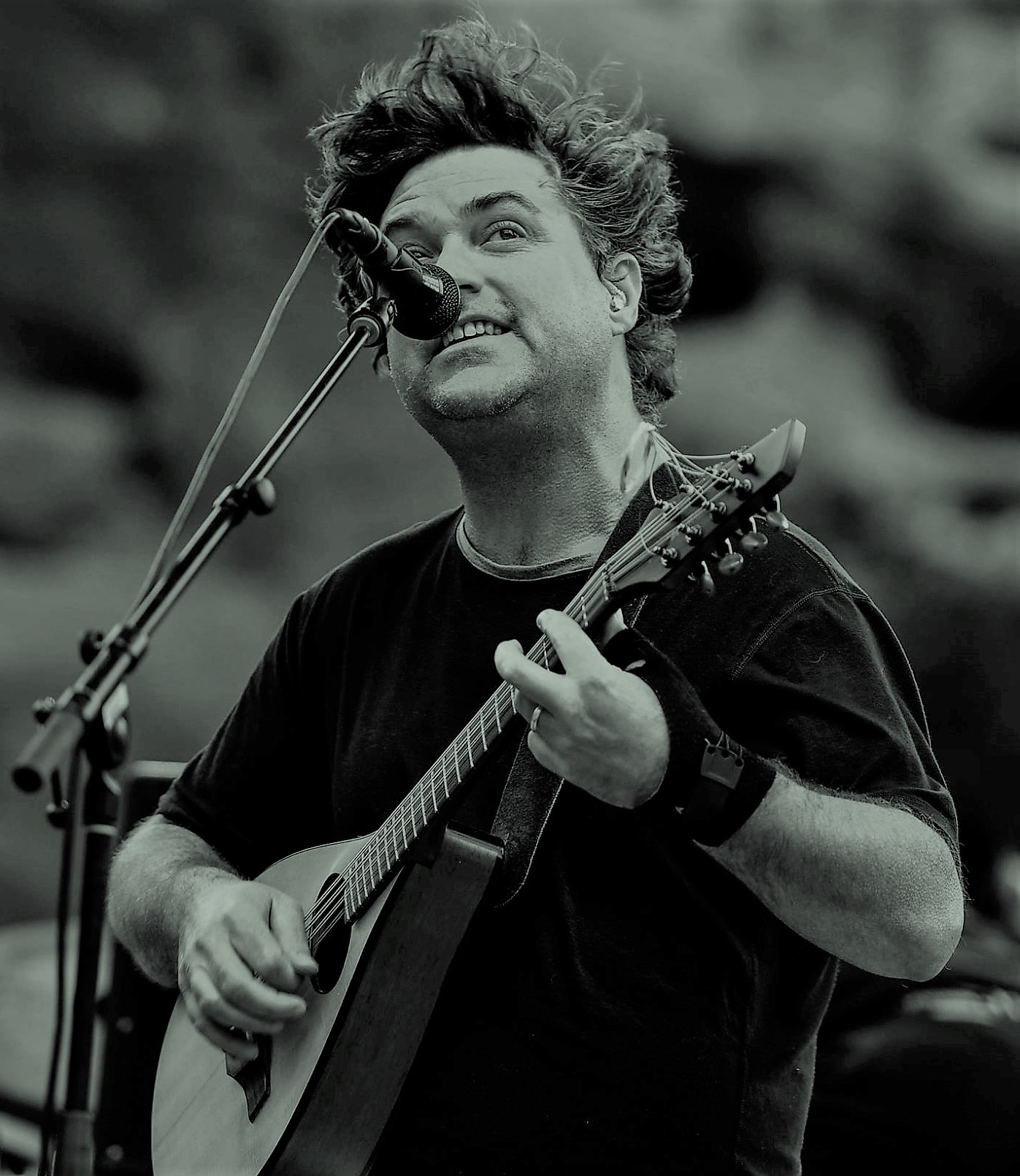
GW: God, could you even play?
KW: Yeah. [Chuckles] I was definitely excited, but a lot of those songs came so natural to me anyway, and I’ve always sang the harmony on ‘em anyway, over when I’m listening to them, so it was pretty natural. And it became more and more comfortable the more times we did it. That was . . . I guess the first time was 2001 on the So Many Roads tour. And after the first time we did it, he would have Charucki set up his rig right next to mine. He would just expect to play the last two songs. I didn’t even have to ask him. He was there to play. And we went through a whole list of songs, just like two, three at a time for that tour. We toured again, I think it was ’07. I think that was called the KellDog tour. [Chuckles] RatDog . . .
GW: Yep, gotcha.
KW: And we played every night in that one, and definitely have a bunch of interesting recordings.
GW: I’ve seen some of the videos. You have a shit-eating-grin on your face, for sure.
KW: Mm-hmm. Mm-hmm. That’s right.
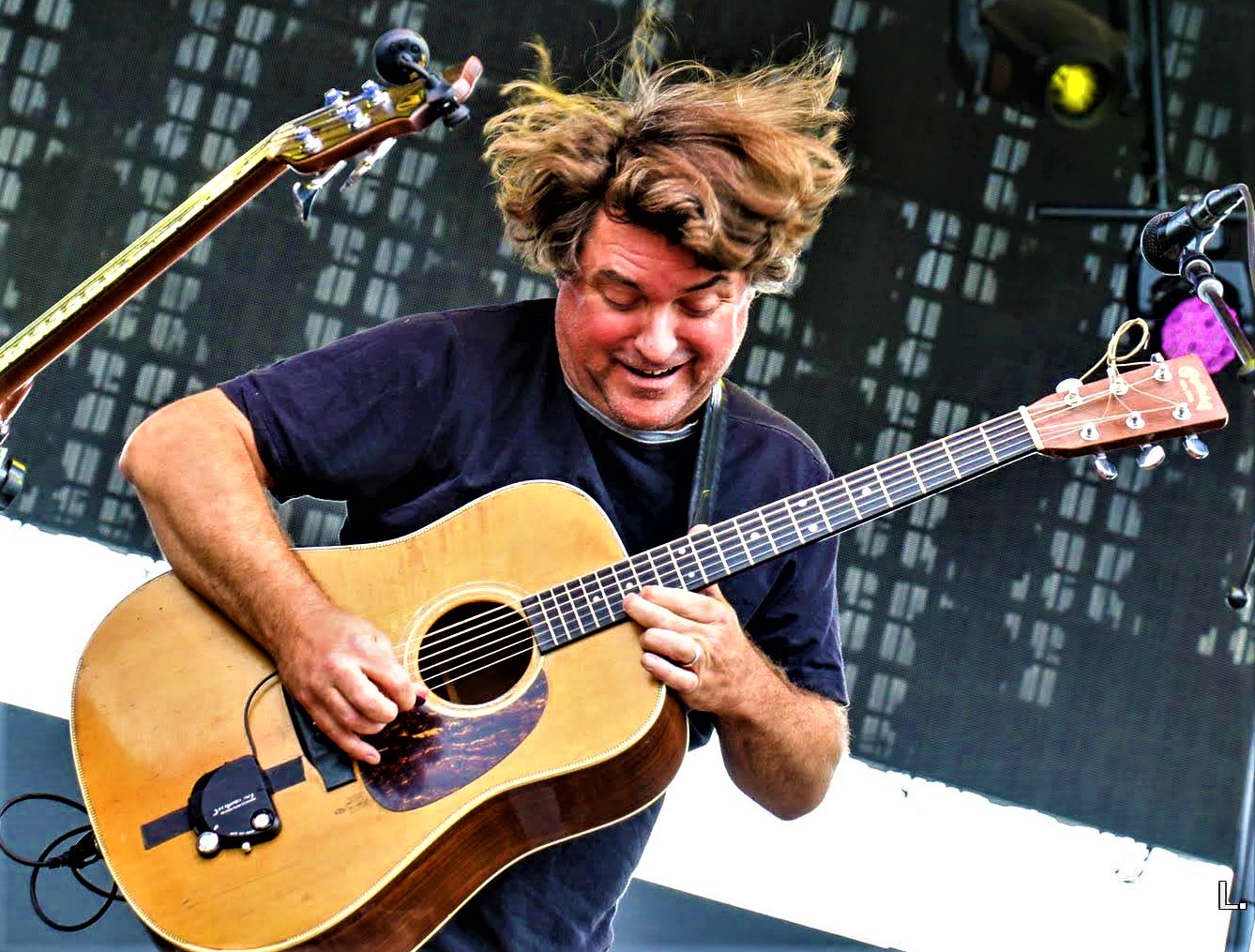
GW: How did you end up meeting Bobby?
KW: I think it’s definitely a management thing to where they were pairing up bands for like a multi-band kind of tour. So it was— who was it? From Pittsburg— Rusted Root . . . and Karl Denson’s Tiny Universe. Karl would go first, then Rusted Root would play. Then I would play the thirty minutes before RatDog. That was a really good slot.
GW: The Dead have done - Phil Lesh too - I mean, all of them have done really good at providing a passageway for the next generation of musicians by playing with so many people in trying to help keep things going.
KW: Yeah, absolutely, especially with Phil with his Terrapin Crossroads. He’s got a whole pool of musicians that just sign up when they want to work, and they just get mashed together with different people. Phil has definitely done amazing things for the scene out there.
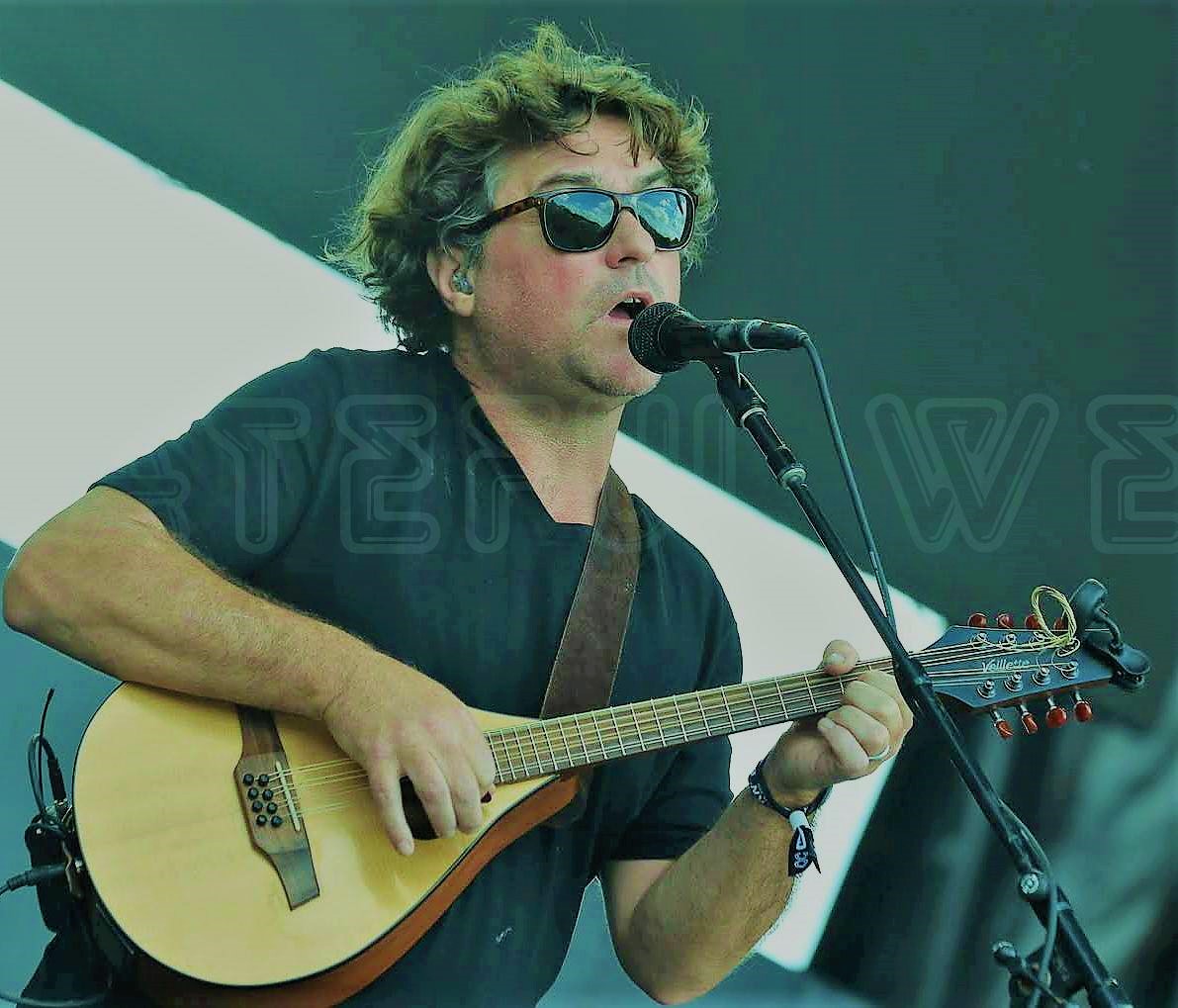
GW: Yeah, it is an awesome thing. I wanted to get into Robert Hunter a little bit as well, because now, as we are watching these guys pass away, with age catching up to all of us, how is it that we see carrying this legacy on?
KW: There will definitely not be anyone like Robert Hunter. The brilliance of his lyrics and how so many people took so many different meanings from his words, how it was such a soundtrack in so many people’s lives. I think again, that influence has definitely spread throughout the young musicians. You know, like the guys you said, in the parking lot, continuing to take it from the parking lot to the stage. And that’s definitely going to continue through us, and all the creative songwriters I think that use that inspiration. I think that’s how it’ll maintain, survive, and always be looked back on . . . and long, long - you know - for many, many years from now. It’s not going to be going anywhere forever.
GW: I can easily see, in a hundred years, Ripple being something in a song book that just says “Traditional” next to it, you know?
KW: [Laughter] Yeah, right, right. That’s right.
GW: This playing with musicians, when I was a kid growing up, if your band lost a guitar player that was kind of the death of your band.
KW: Yeah, right.
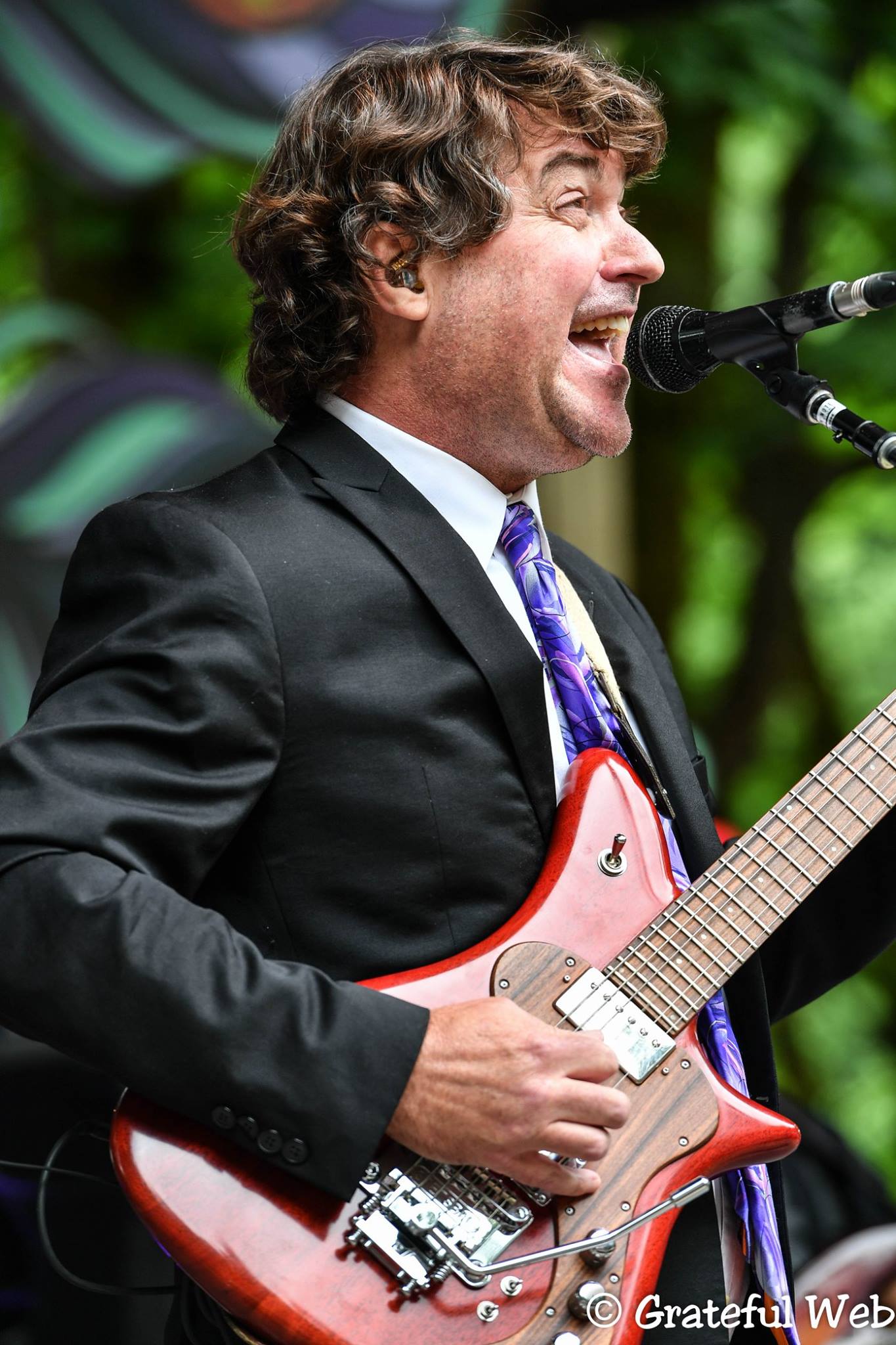
GW: And nowadays we have bands that are constantly roving, that constantly have new musicians coming in and out. You might’ve had some of that with Jeff Austin being in Grateful Grass in the early stages. I wonder about your insight in this. I know that musicians have always played with each other, but is this something new? This revolving band phenomenon that seems to have erupted out of all this?
KW: Well, I mean, a lot of us don’t have back-up plans, you know. It’s not like - I know speaking personally - it’s really fun for me, and I wouldn’t do it if it wasn’t fun. And if it wasn’t my career, I’d probably still be doing it (sitting in with others). But as far as Grateful Grass goes, Jeff was definitely in the very first one in 2006 and did a handful of them throughout the year. He was always very, very busy, and he agreed to maybe five out of ten gigs I threw at him. I was very grateful for the time I had with him. And it’s just like Circles Around the Sun and Neal Casal. That’s a real tricky thing to think about replacing him. But I saw them on Jam Cruise, and I think Eric Krasno took his place and really studied the parts, and it was really special. So yeah, I think it can definitely continue. It’ll definitely never be the same, you know, like Widespread Panic with Mikey Houser. It always was very different after that, but it still goes and still flows, and people still dig it.
GW: You’ve picked up on some of the bluegrass stuff, I was wondering what you thought about today’s fans and their appreciation for strings these days? With Greensky Bluegrass, the Dusters, Billy Strings, you, I just get a sense of a lot of strings going around. I was guessing it kind of came from the fire pits, maybe a little Grisman/Garcia.
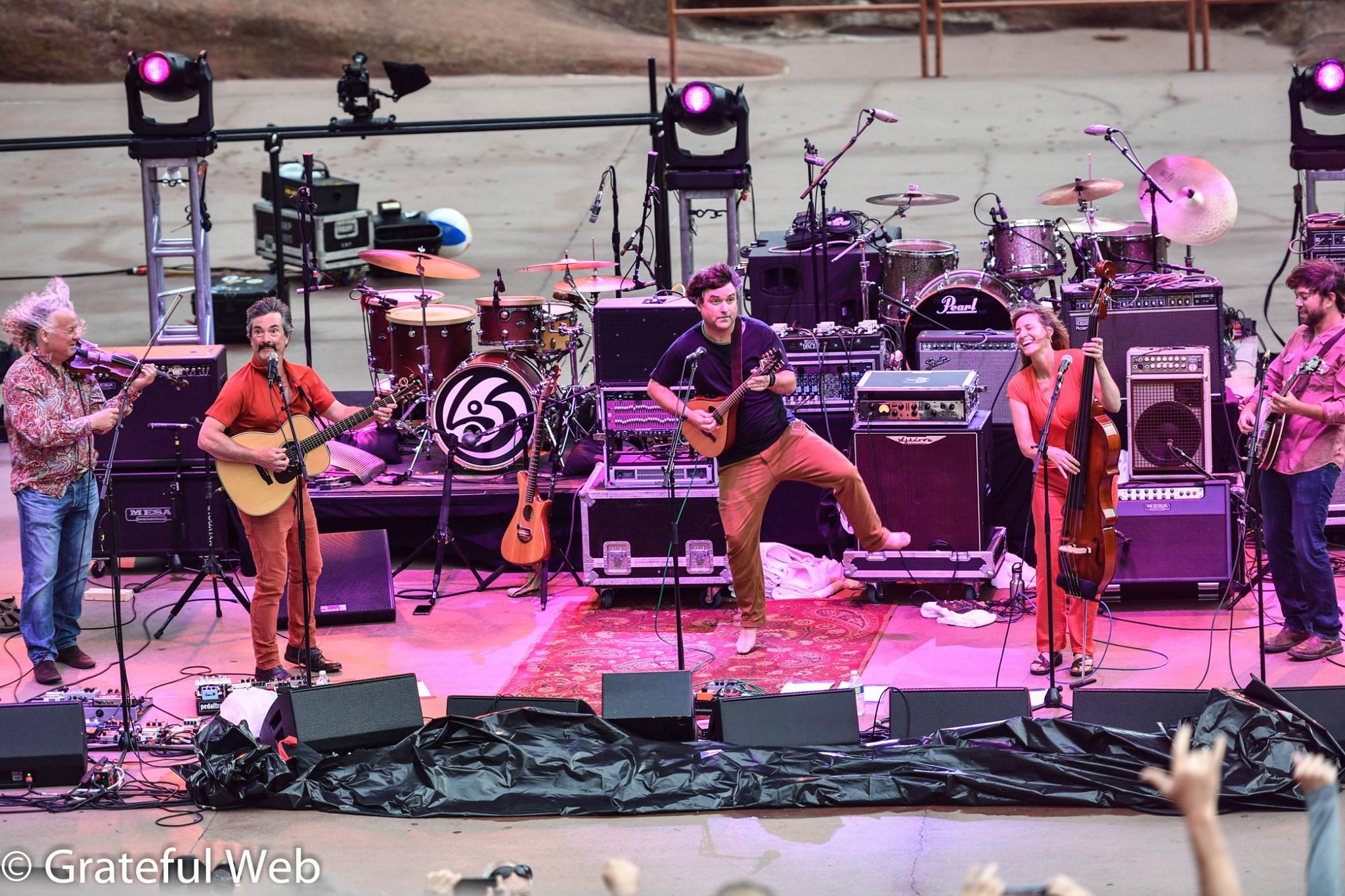
KW: Yeah, I’ve got a trio that I’ve been working with for a long time called, Keller and the Keels. Larry Keel, Jenny Keel. We just played last night at the radio show, Mountain Stage. It’s kind of a bluegrass trio. We’ve got three records. We just put one out.
GW: Speed. Yeah, I was going to get to that.
KW: Yeah, yeah. The first record we did in ’06, I think. On that record, there’s a version of “Loser” by the Grateful Dead. And then we put out another one, maybe a couple of years later, called, Thief, and we do a version of “Mountains of the Moon.”
GW: It’s a nice version. I love that song.
KW: So with us, I’ve taken that influence from the Grateful Dead, and I’ve kind of put that into my pedal board. And so with some weird effects and delay, and some bluegrass, we like to call it, Psychedelic Appalachian Grass.
GW: [Laughter] As long as “grass” is in there, you’re okay.
KW: [Chuckles] Yeah, then you know it’s a timepiece. It definitely has an authentic taste of the Appalachian, and it’s definitely psychedelic in a sense that we go places. “It’s not your father’s bluegrass,” is how we like to say it.
GW: That’s a good way of putting it. Here in Alaska, we have our own sound, which we just call the fire-pit sound because something like an Appalachian name hasn’t arisen for it yet.
KW: There you go. There you go.
GW: Speaking of, you played Salmonfest here not long ago.
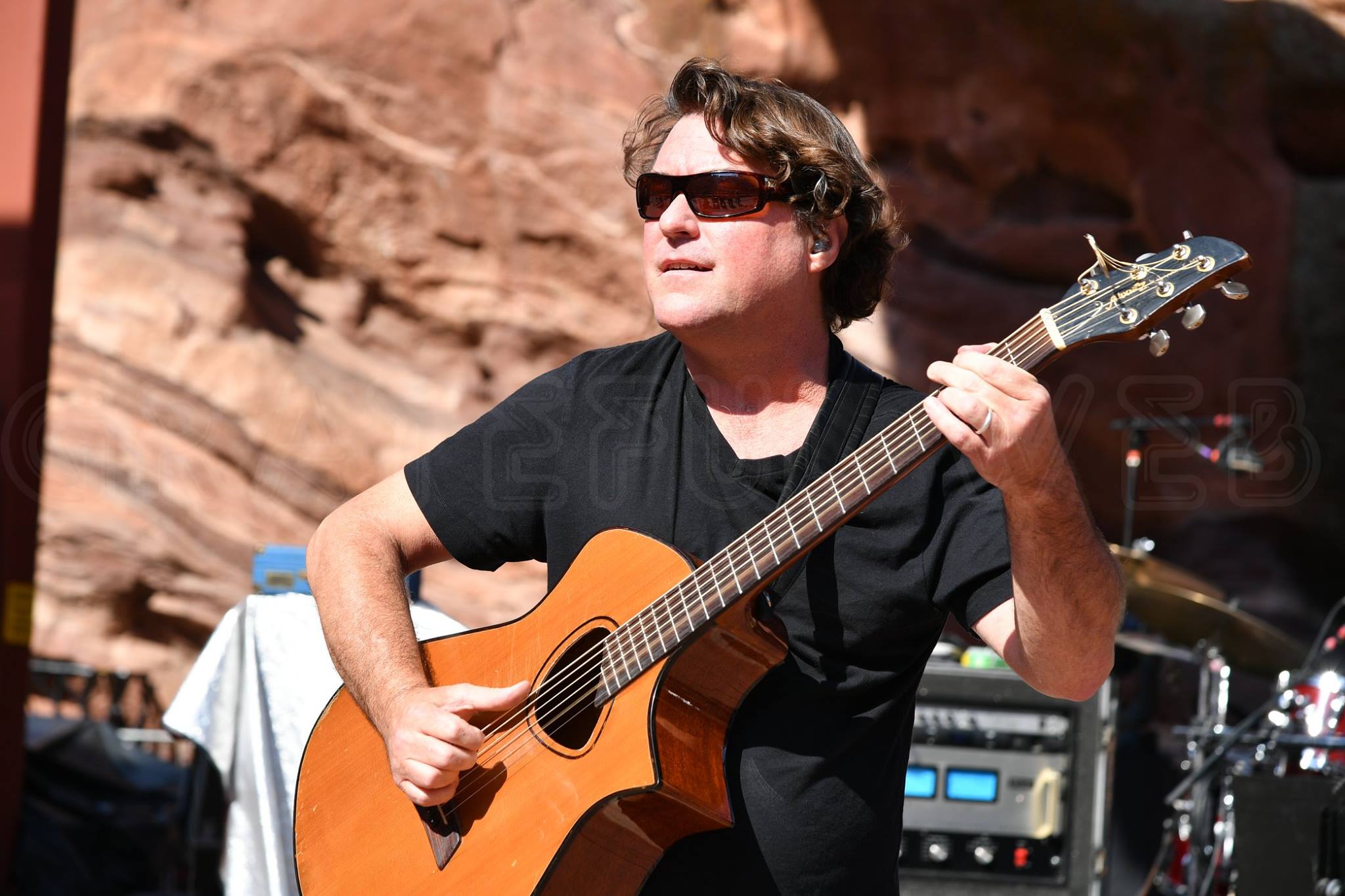
KW: Yeah, that was last year. I just did that with— uh, Ani DiFranco was there. And then, I guess a couple of years ago, it was the one where Todd Snyder was supposed to be there but didn’t show up, and his band— Dave Schools, Neal Casal, I think it was Duane Trucks on drums, who plays for Widespread now. Yeah, that was a good show. Even if Todd Snyder didn’t show up for it, it was still a good show. Yeah, I love Salmonfest. They do a really great thing with what they’re doing there.
GW: They do. I covered them a couple of years back, and it’s a really good festival, in a beautiful spot between the inlet and river. It’s nice to have the musicians make it up this way. Going back to the Skull & Roses festival, they have some pretty serious people playing this year. I mean, you go all the way back to David Nelson who was playing with Jerry before the dead, Kreutzmann through to Oteil and Chimenti, Seals all the way up to others that have jumped on the bus over the years, George Porter Jr., Jackie Greene.
KW: Right, right.
GW: That’s a lot of pretty core Grateful Dead stuff going on at Skull & Roses. Is that kind of exciting for you?
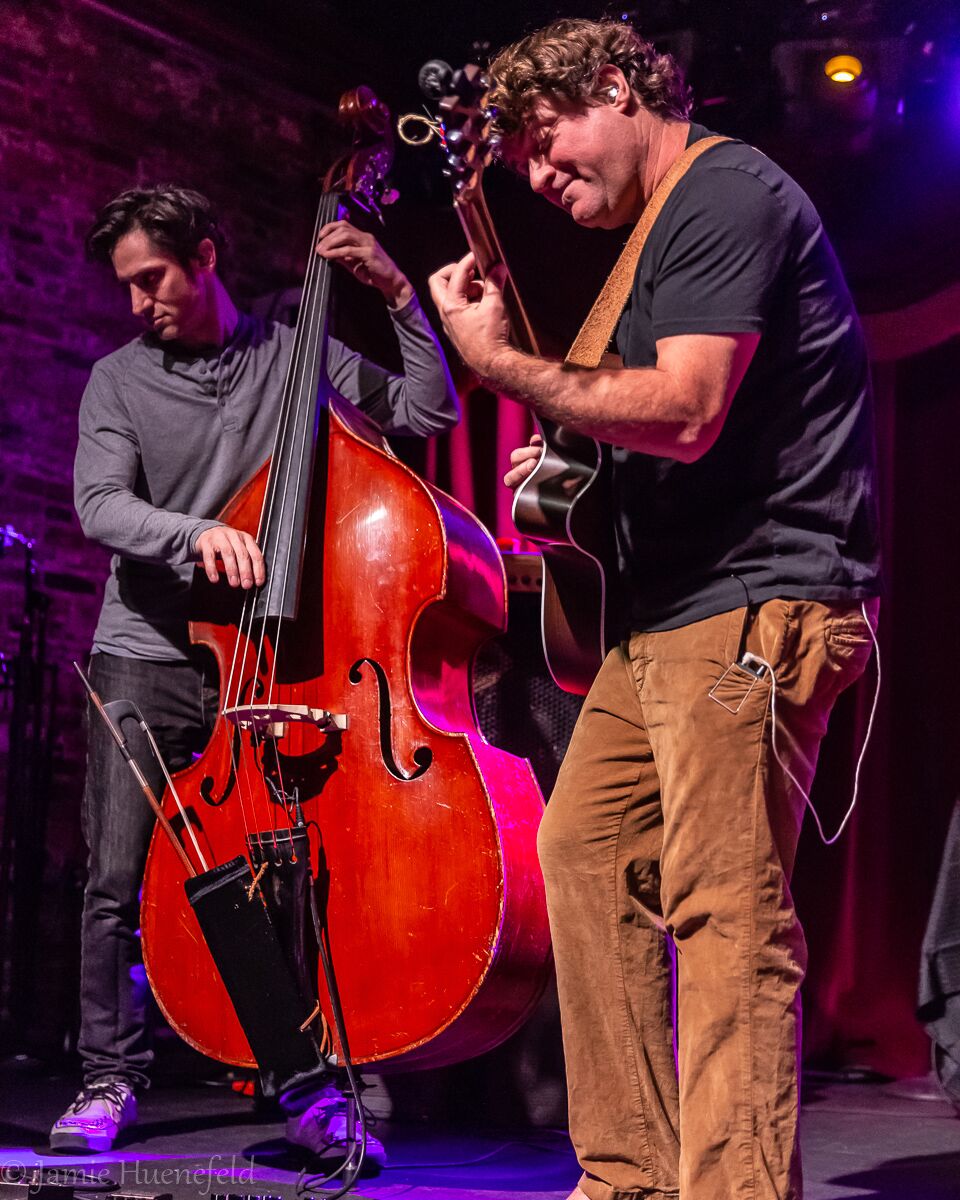
KW: It’s completely exciting. Yeah. And just the way that - I don’t know if they’re doing it this year - but Steve Parish was recreating the Wall of Sound. I think that they were just maybe empty boxes but it was a good look. I saw a picture of it. I don’t know if that was last year or the year before, but I’m excited to come to Ventura.
GW: The Wall of Sound could be pretty intimidating, especially if you’re playing bad, because, with the Wall of Sound, it comes out really bad. They had to be really good to play at that kind of volume.
KW: Yeah, that’s right.
GW: That reminds me of a simple music question. I know when I’m playing guitar I have times where I’m just like, “This is not happening.” Does that happen to you on stage? And if so, what do you do?
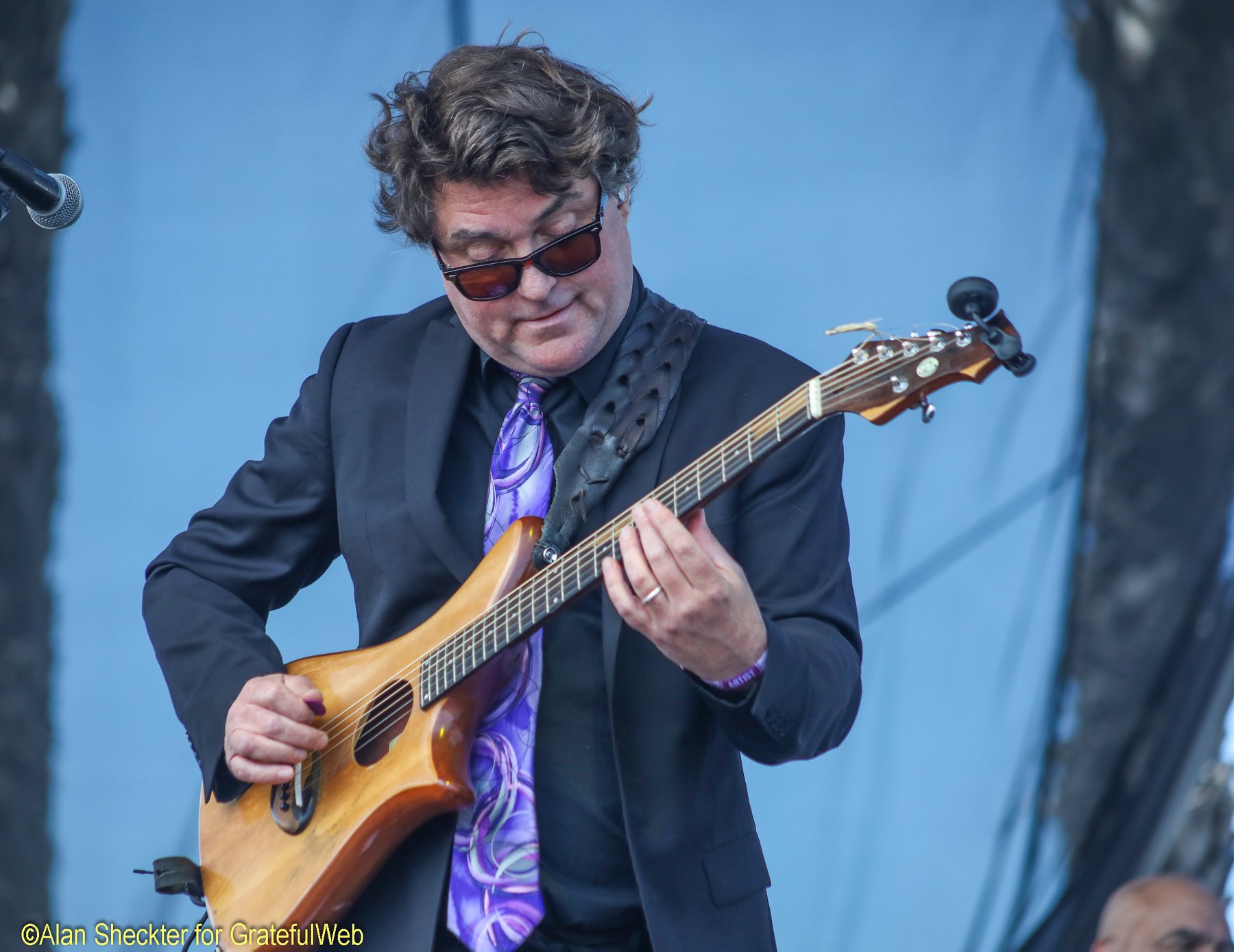
KW: Well, you might want to just reach back into the more familiar, comfortable songs. Sometimes when it’s not clicking, maybe you’re trying new songs or your experimenting goes wrong, and that can kind of take you down. But I think, once you kind of get back to the happy place, get back into a more simpler view, it works out. I definitely enjoy what I do. The only thing that gets me is sometimes the hecklers, people that are on a different level, different plane, different buzz than I am, you know, and wanting something that I can’t provide. Sometimes that gets to me. But other than that, it’s usually a very peaceful atmosphere. And we have a mantra before we go on - that’s whoever I play with - and that’s “Low pressure, low pressure, low pressure.” So we take it very lightly, you know, and definitely try not to take it too seriously, so not a lot can go wrong at that time of night sometimes. Even if it does, we pretend it didn’t.
GW: Right. One friend of mine came up to me after performing and said, “God, did you hear me mess that up?” And I’m like, “Dude, it’s one-thirty in a bar, we’re drunk. No, we didn’t hear you mess up.”
KW: [Laughter] Right. Right.
GW: You do keep an incredibly busy schedule. I would think a lot of people would wonder how somebody keeps such a busy schedule without it wearing you down. Loving it always helps.
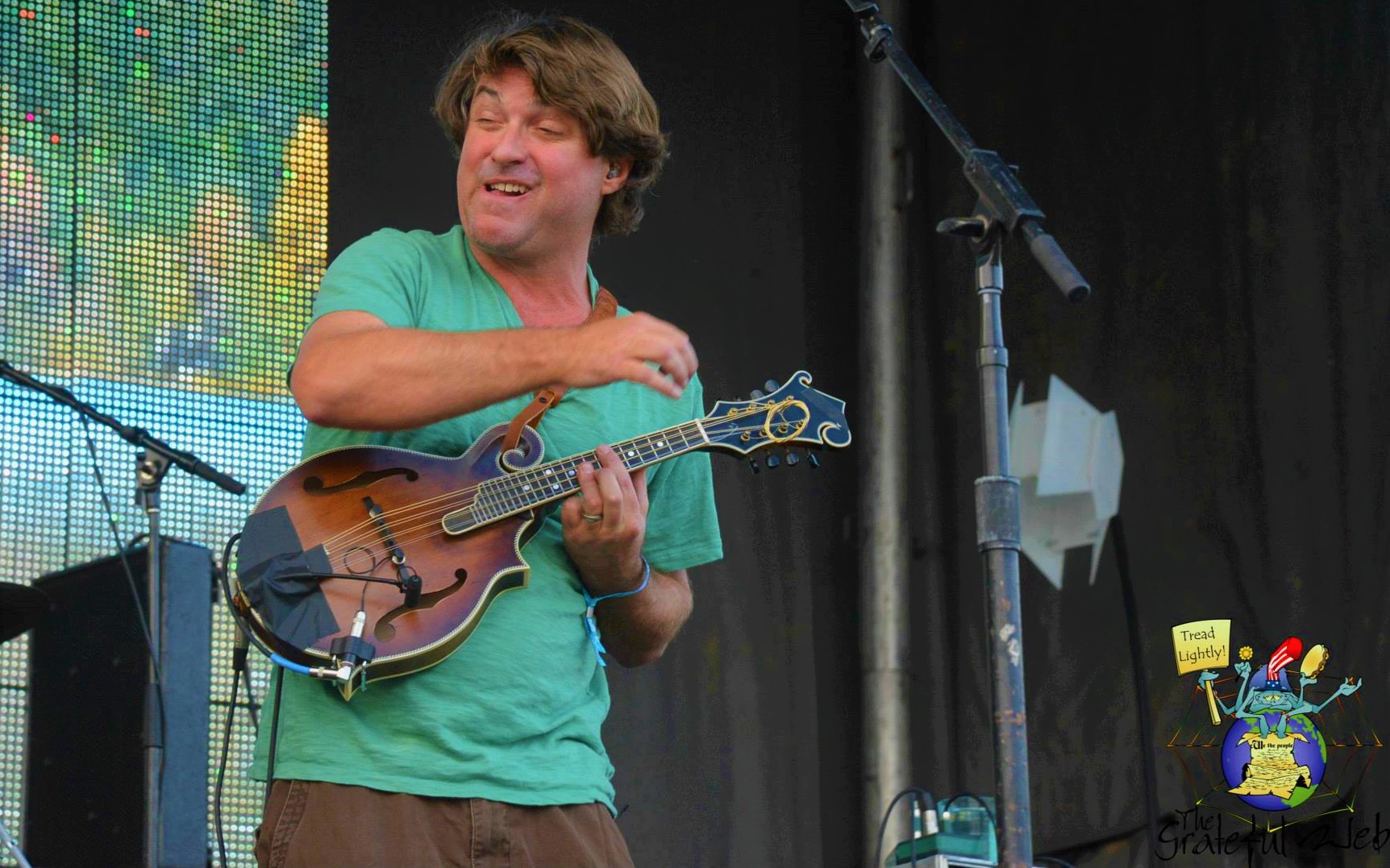
KW: Well, it’s a fine balance. We usually leave Thursday morning and return Sunday evening. So, definitely Monday, Tuesday, Wednesday are down days at home, in your own bed, your own house, your own cooking. And then we’re off for the weekend. It’s kind of a weekend warrior mentality that we’ve definitely adapted over the last decade. There’s a lot of flying.
GW: I bet.
KW: All flying really. Very little driving from our house. Which when it does, I love it because we can bring a whole bunch of crap. [Laughter] You know, stuff everywhere. When we fly, it’s very slim.
GW: This is kind of your performing time, but you also had a radio show going, you’ve put out 25 albums. You have many side projects, as well as organizing your merchandise, keeping your website up, Facebook. There’s all these other busy-nesses just around the performing, booking gigs, talking to me kind of thing. The schedule just seems daunting.
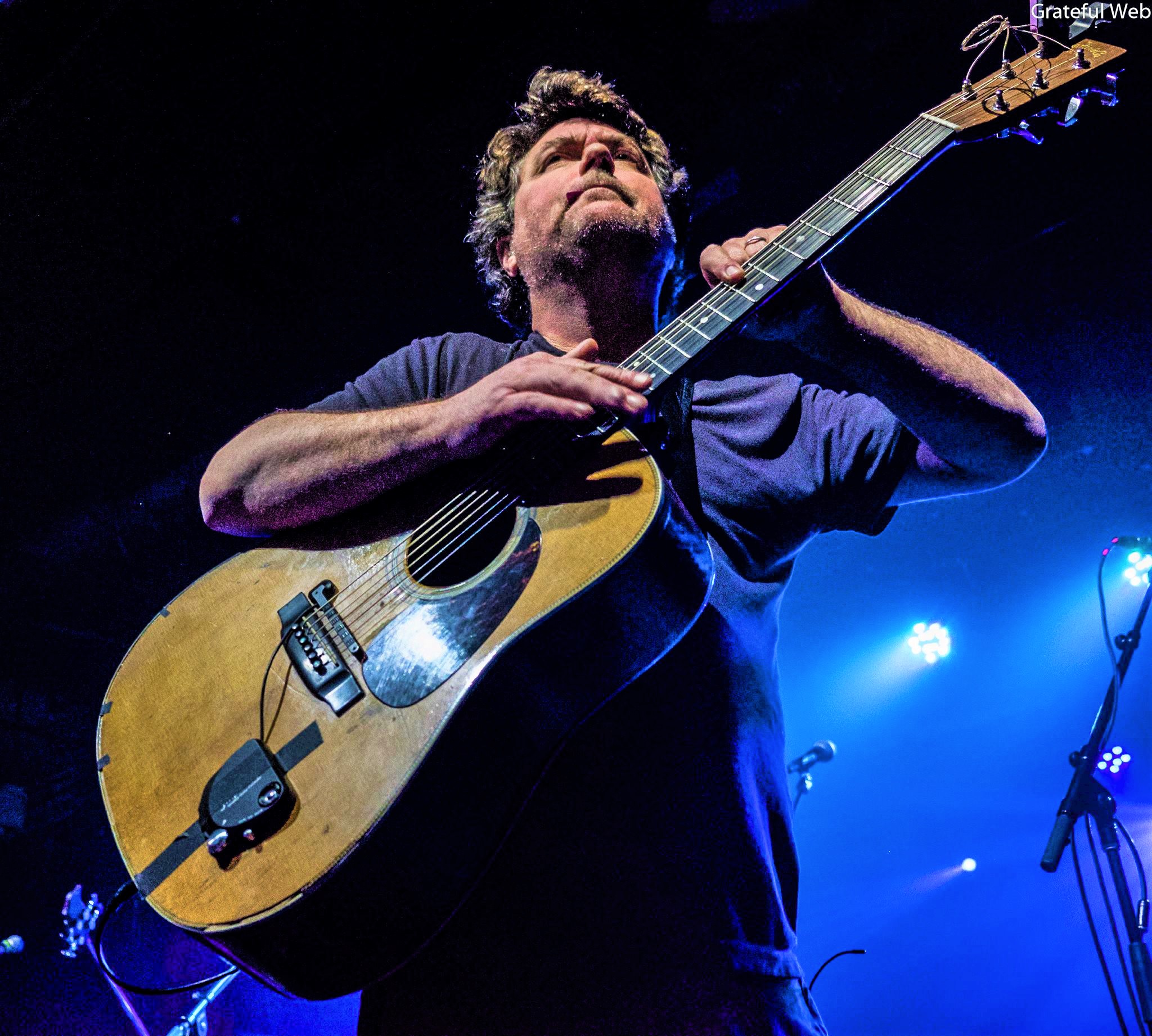
KW: Like I said, Monday, Tuesday, Wednesday, I definitely hit the downtime heavy. I definitely don’t do a whole lot of things, and always guitars and basses around, always plucking, sometimes mindlessly, never going anywhere, sometimes focusing on a song, but usually it’s just doodling. I also have an amazing team that takes care of . . . everything, a booking agent, and a manager, an amazing tour manager that also does everything - he does travel, hotels, driving - and a wonderful person in management named Isabel, who really does the day to day stuff. But everybody answers to my wife. [Laughter] She is the boss that sees to everything. She has no idea where I’m going next weekend, but she knows where I’m going in eight months. She looks at all the books and looks at all the routing, and kind of like plans out the routing and gives it to the booking agents. Definitely takes care of all the money, and . . . I kind of do what I’m told. [Chuckles] And I kind of show up when I need to and I play the best I can for the amount of time that is on the contracts. Sometimes I try to play longer. I love what I do. It’s all the time in the air, the jet lag, the pressure in your ears from being in the sky so long. That’s what you get paid for.
GW: When I talked with Holly Bowling, she was saying that it really works best if you’re working with your partner instead of one partner having one career and the other having another when you’re both intertwined by the music because it’s so dominating of a profession.
KW: Right. True. But you gotta go. [Chuckles]
GW: So, Winter Wondergrass is gonna be your next gig, is that right?
KW: Right. Mm-hmm. That’s right. Steamboat.
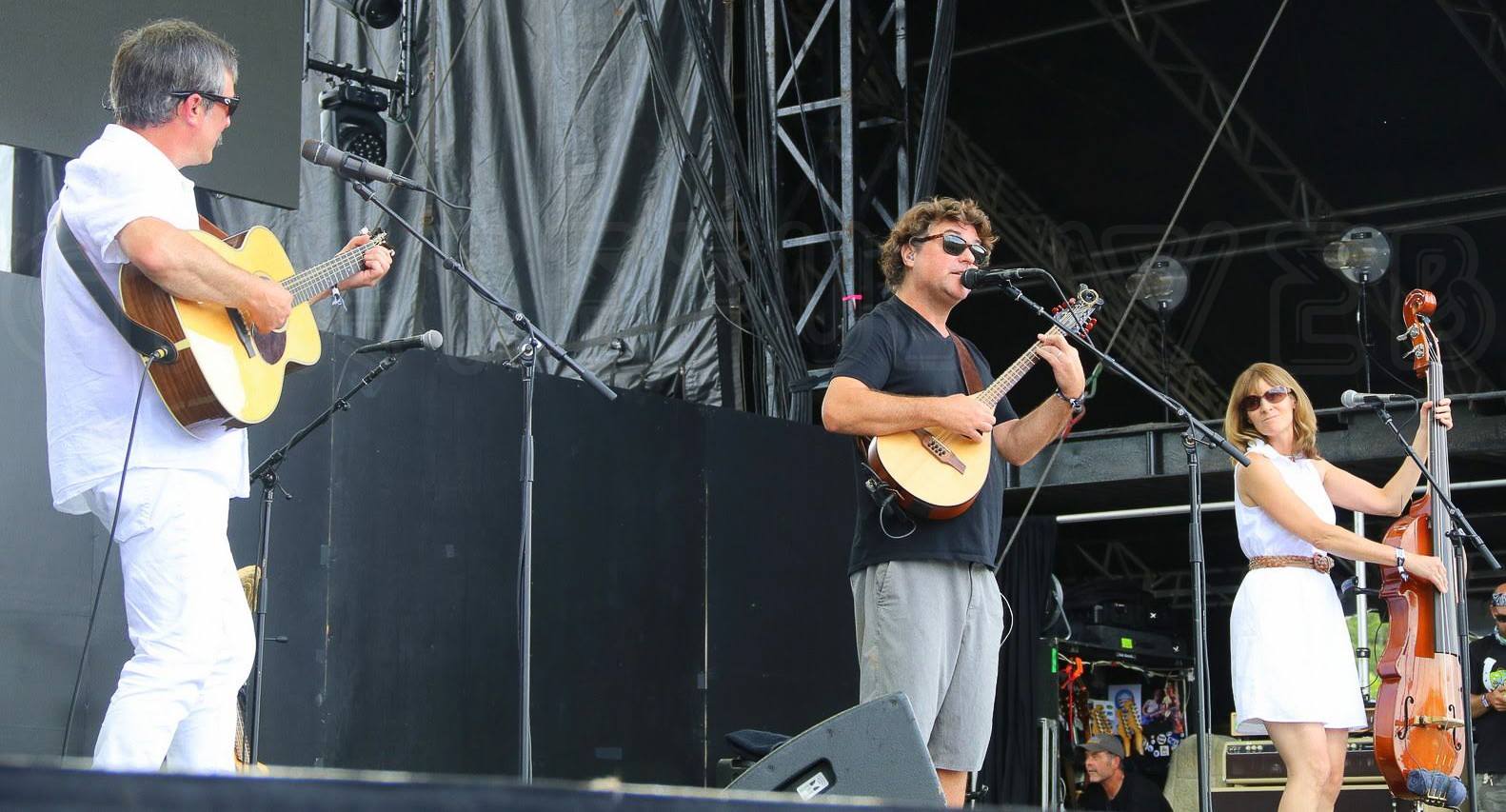
GW: You’re playing with the Keels on that. Kind of pushing the Speed album a little bit.
KW: I am. Yeah. Just having a really good time.
GW: A good way to go. I also wanted to ask you about your work for the Rex Foundation, kind of help give them a little promo. You played with Greensky and the String Dusters during one show last summer for them. I was curious about your interest in the Rex Foundation and how that show went for you guys.
KW: I have actually three things that I’ve done for the Rex Foundation, with all proceeds going to the Rex Foundation. The very first Grateful Grass recording - all the proceeds to that goes to the Rex Foundation - as well as the second one, which was recorded at the Fillmore. Actually both were recorded at the Fillmore. The first one was the Fillmore in Denver. And then the second one was at the Fillmore in San Francisco. And then the third thing that I have is called Keys, and that’s me playing piano, all Grateful Dead songs. All proceeds from that goes to the Rex Foundation too. Basically, I have so much love and respect and honor, and am just so grateful for the Grateful Dead, that anything they produced, anything that they started— which I know Grateful Dead had a lot to do with it, the beginning of the Rex Foundation. The Rex Foundation became this incredible blanket that covers so many different areas. That was all I needed to know. And so, to record these songs and then to just give them back, and to have those songs make money for this foundation, is a real honor, and it seems fitting.
GW: There is this thing about Deadheads where we all want to return the favor. I know when I got a chance to talk with Mickey Hart a couple of years ago, the first thing I wanted to tell him was thank you.
KW: Yeah, right. Right.
GW: The Dead was like this hand that reached down and grabbed us from a normal existence and brought us into something completely different. And all I’ve got is thanks.
KW: Yeah. Sometimes that’s all you need. That’s right.
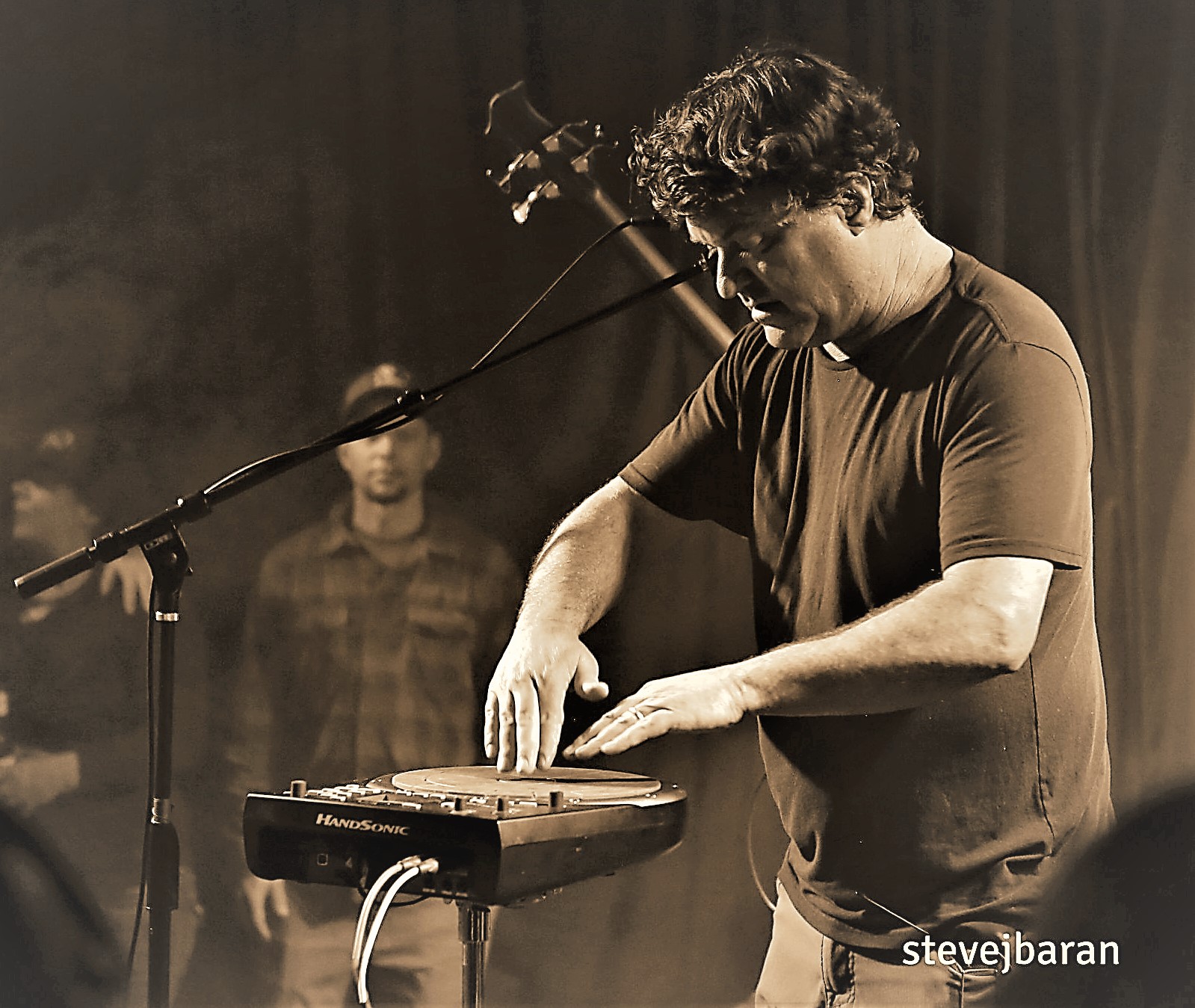
GW: You’ve played with the Rhythm Devils a little bit too, right?
KW: I did. Two weeks.
GW: How was that?
KW: That was interesting. Very, very interesting. Mickey definitely had a certain vision that we were not getting. [Laughter] The best times, the most memorable times from that two weeks was definitely the off-stage camaraderie with Bill Kreutzmann and Mickey. When we weren’t really playing music together, Mickey was very, very friendly, very open, and very forthcoming with stories that I was just sucking up, just eating everything. But the musical side was a little frustrating. It’s definitely an experience that I’ll never forget, be it good or bad. Andy Hess, Davie Knowles, Sikiru, I’ll definitely cherish the moments with them. And Bill and Mickey, to have those guys play behind me was an amazing experience, for sure. I think Mickey Hart would probably have a different opinion on my two-week stint, but we came away from it on great terms. [Chuckling]
GW: Well, you’re not the first person to struggle playing with Mickey. [Laughter]
KW: Right, right.
GW: But just the opportunity, I wonder did you feel that need as you met these guys to thank them for what they meant in your life?
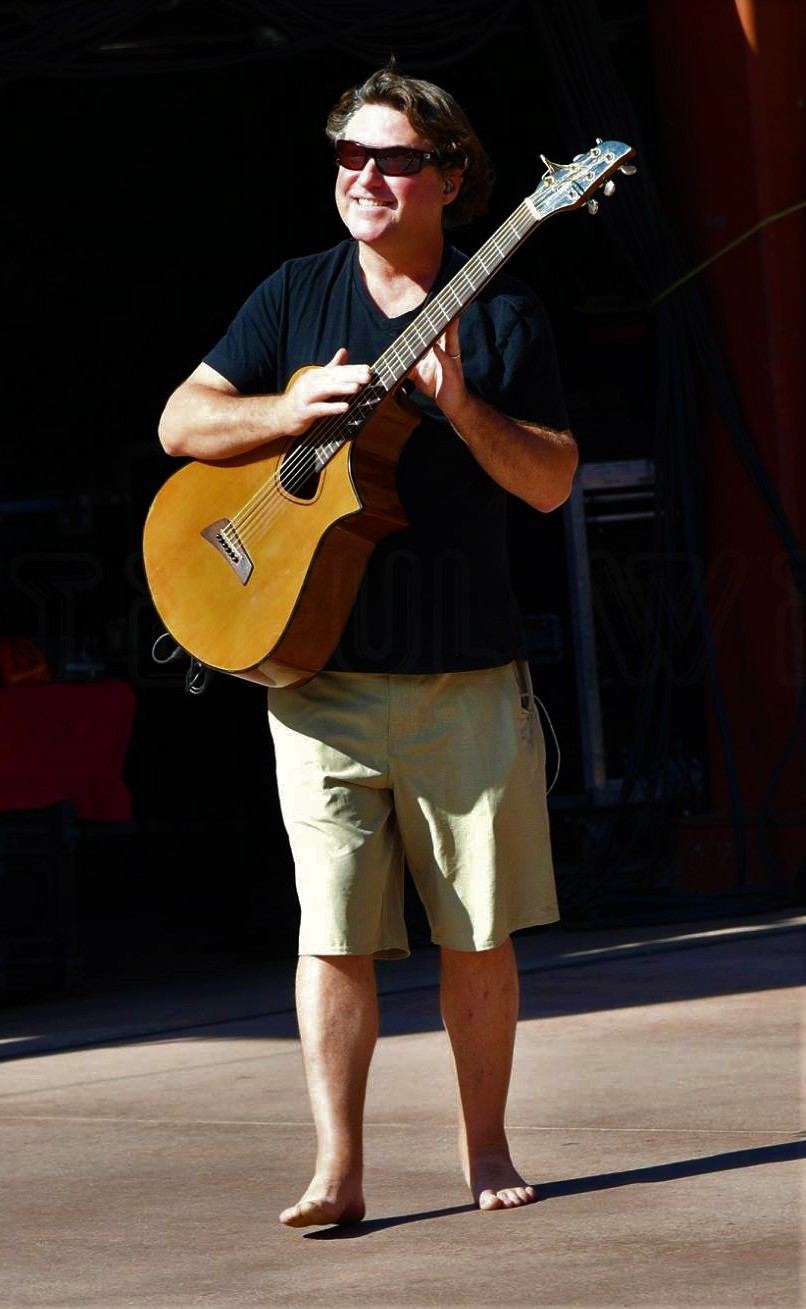
KW: Absolutely! Absolutely, absolutely. Yeah. It comes to a point where you can’t do it every day. It starts to make them feel uncomfortable. [Chuckles]
GW: Yeah, right. You want to keep your own savvy alive. [Laughter]
KW: Mm-hmm.
GW: Here’s Keller Williams groveling at the feet, right?
KW: Yeah, right.
GW: That’s great. [Chuckles] That’s great. Just on a simple note, if you were to recommend a Grateful Dead show, like what was that bootleg that stuck in your car the most, that was special to you?
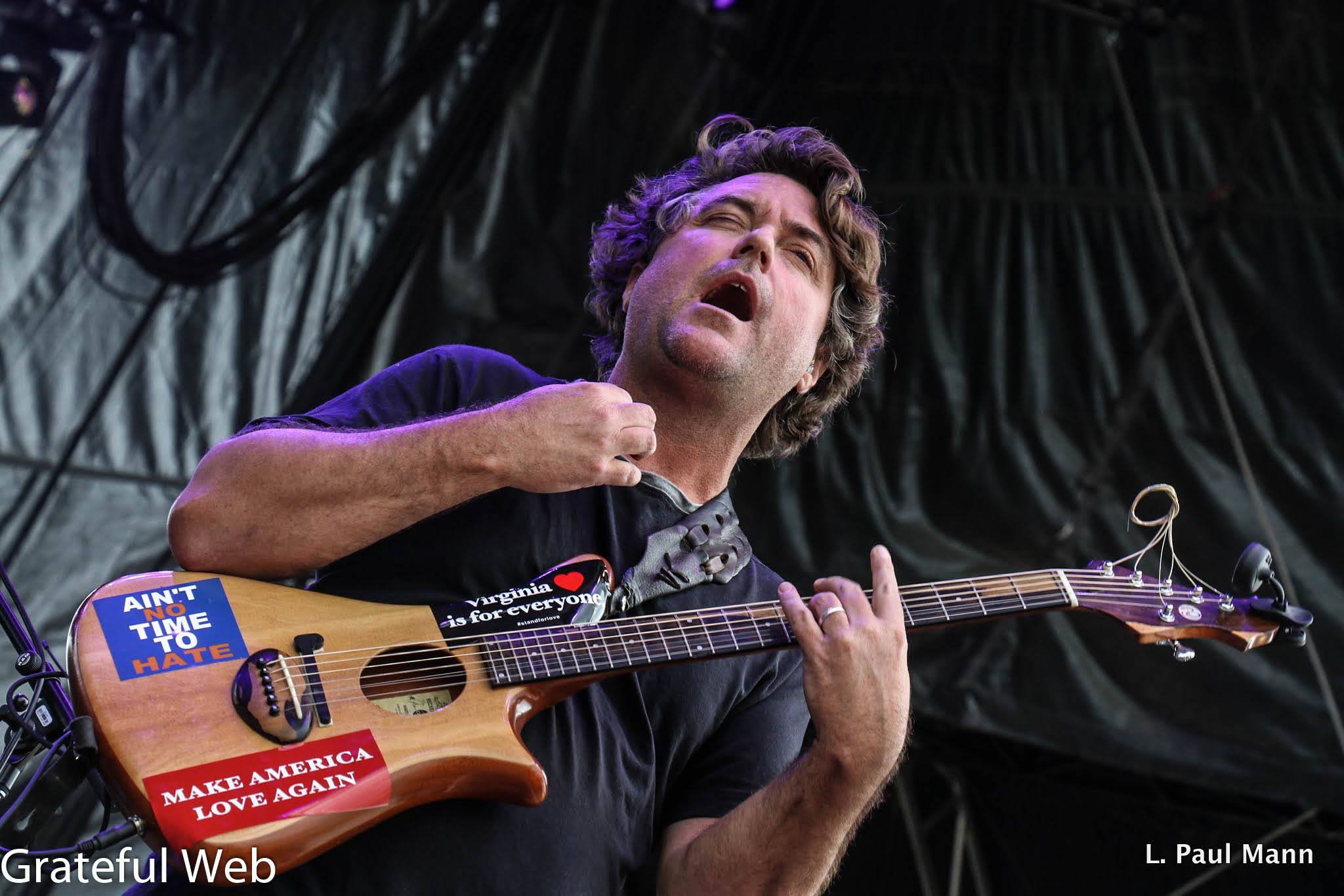
KW: Um, you know, I haven’t heard it in a long time, but I want to say Huntington, West Virginia ’77 stands out.
GW: I have that show. Good one. Great Prophet.
KW: The closing of the Fillmore - oh no, wait - the closing of . . . um . . .
GW: Was it Winterland?
KW: What was the one? I think it was like ’77. Yeah, yeah, I think it was the closing of the Winterland. Yeah, I think that show kind of stands out, I think Bill Graham - oh, oh, oh, oh, that Great American Music Hall in ‘75.
GW: I have that one as well. That is a great one!
KW: That’s the one. That’s the one.
GW: Yeah, Crazy Fingers, big fan. I got a - what is it? - a ’69 Avalon that I really love. I like going back when Jerry was so raw.
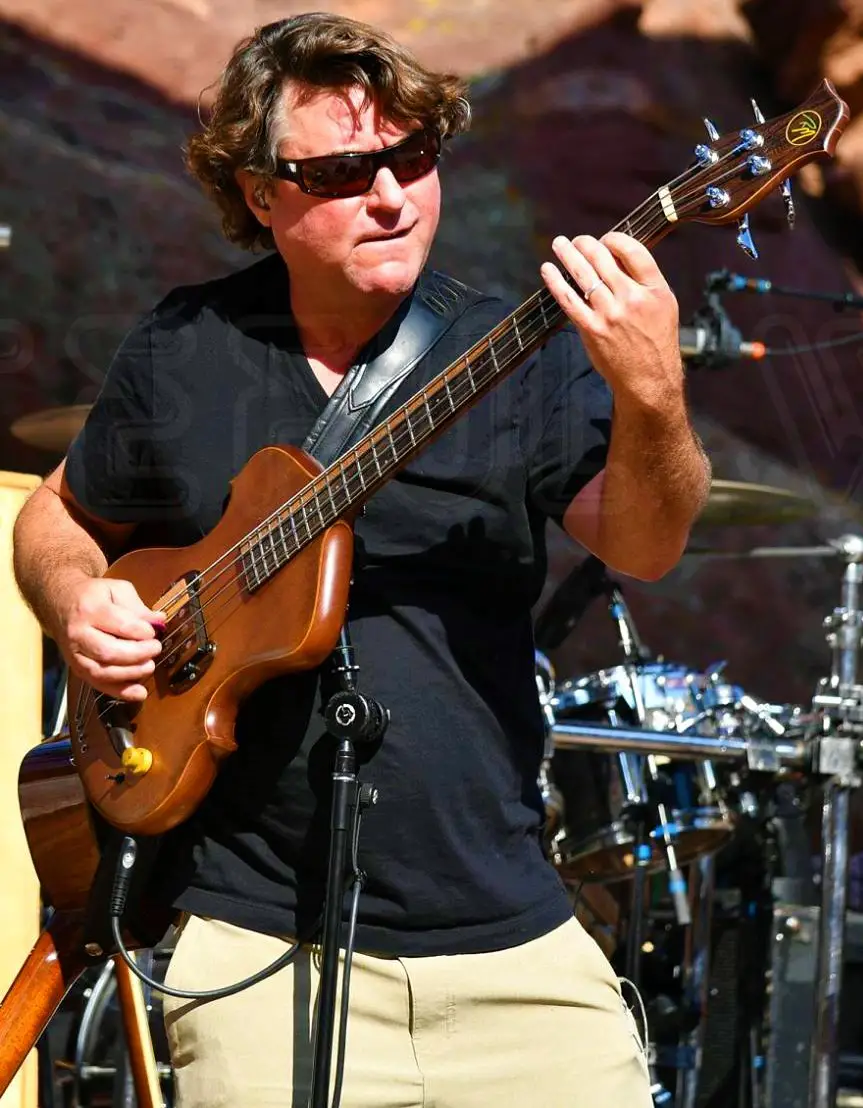
KW: Right.
GW: And the force was so driving.
KW: Right.
GW: You were just like, “Holy cow!” This guy is just like . . .
KW: Right.
GW: I do have a liking for that old stuff. And the transition period going from ’69 to ’74 where there was so much new song creation, change in style and equipment, and Robert Hunter was just on a roll.
KW: Yeah.
GW: You’re actually playing with the Hillbenders at Skull & Roses, not the Keels?
KW: That’s right. Nope, nope. We’re playing, “It’s Grateful Grass featuring the Hillbenders.”
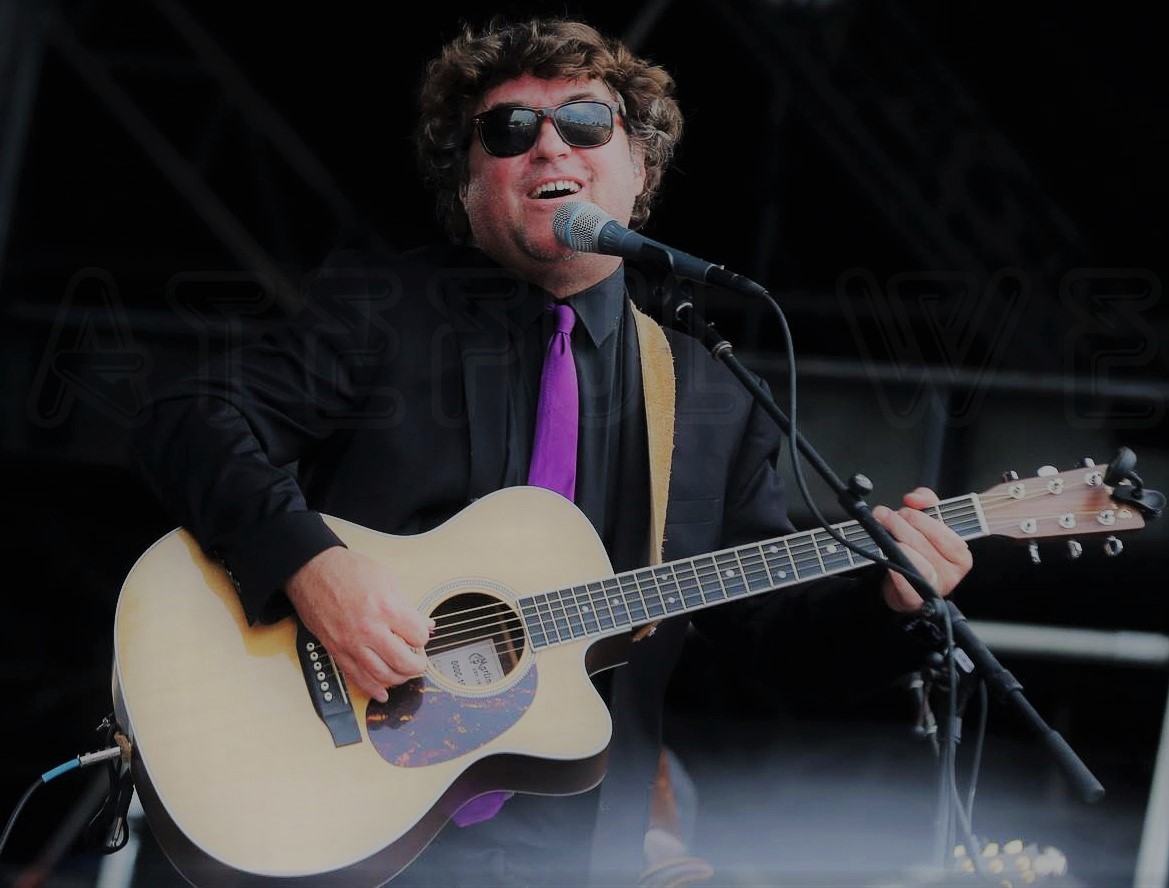
GW: Ah, gotcha. So, when you get to these festivals, do you end up playing with these guys a lot backstage or after shows, or do you kind of keep it to the stage?
KW: You know, it depends. It depends on how far we had to travel to get there, how many hours we have in the hotel, if we leave right now. There’s a lot of factors, but I try to every time if people are picking backstage, absolutely. Larry Keel especially. Especially with the bands I play with, and we’re picking backstage, and there’s a big upright bass there, and everyone kind of circles around the big upright bass. That’s where the beauty of the acoustic music lies, right there in that backstage with all acoustic, nothing’s plugged in. And it never, ever sounds as good on stage as it does right there in that moment backstage. It’s a beautiful thing, for sure.
GW: Yeah it is. I’ve had some people talk about that before, where they’re just like— it’s playing with your friends. Maybe it’s that no pressure that you were talking about.
KW: Yeah, that’s right. That’s right. Yep.
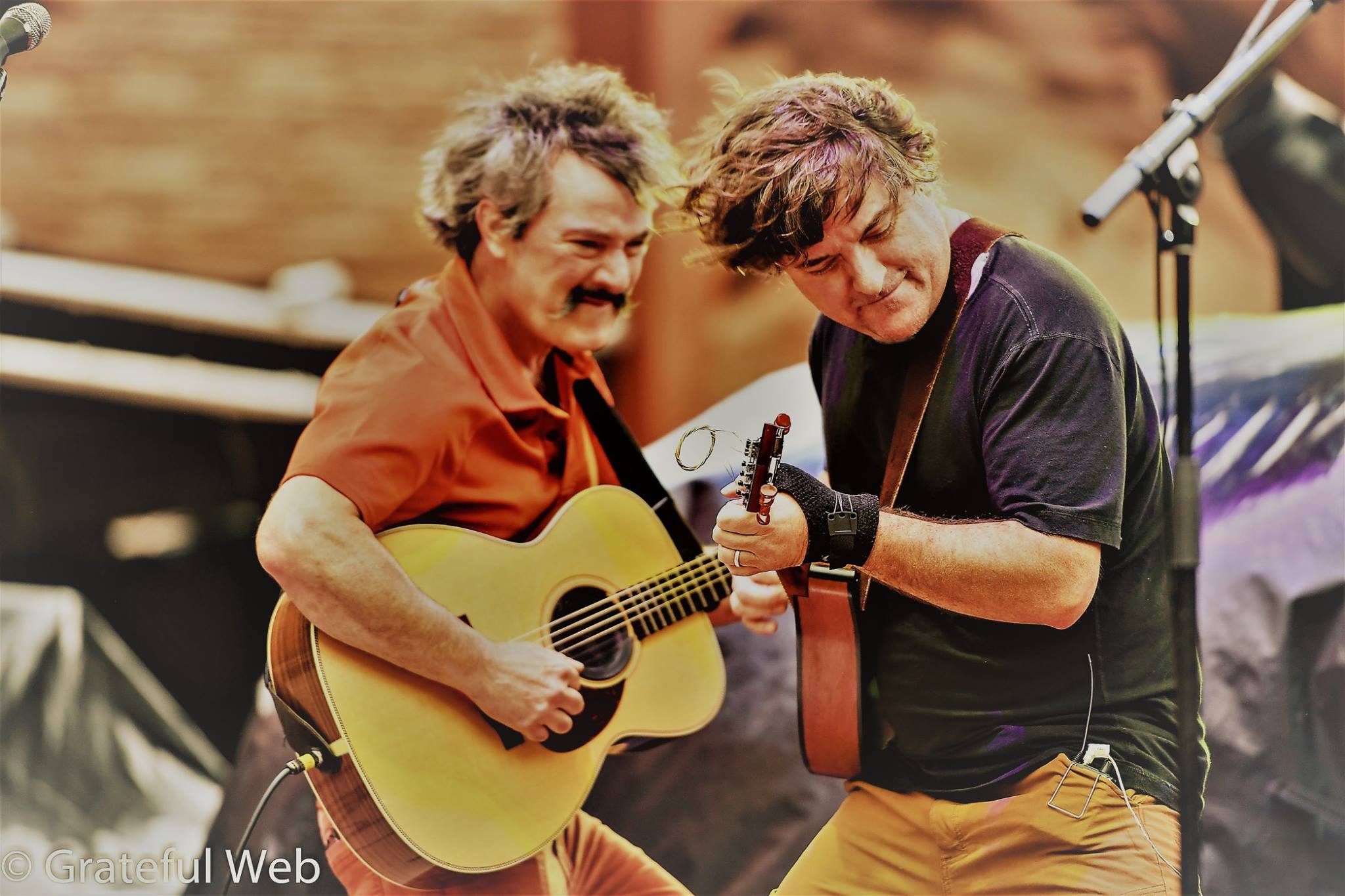
GW: Do you prefer the festival scene to the organized venue? There’s such a difference in the two.
KW: Both of them are really exciting. The venue vibe is great because you go in during the day and you dial it up, you get the whole feeling of the room, take your time. And you relax and you eat, and it feels great. The festival scene is where you kind of go in, you have thirty minutes to get your stuff on stage and play, and then you have to get it off. But the festival thing is definitely a way to get to a lot more people who have never seen you that were possibly there for something else. And that’s really exciting, you know, playing songs that I’ve been playing forever and then have someone who has never seen you before for the first time. It’s a beautiful thing about a festival— just the overall excitement and adrenalin of that. It’s great! The soundcheck and to be able to relax is a beautiful thing as well.
GW: Yeah, yeah, I got you. Do you have certain festivals you’d recommend to people if I could only go to two festivals this summer?
KW: It depends on what you’re looking for. If you’re looking for small and friendly - and family-friendly - Floyd Fest in Virginia, in Floyd, Virginia is a beautiful experience. I’m just gonna name Virginia festivals. The Lockn’ Festival in the hills by Charlottesville, and that’s always a big Grateful Dead presence. Always a big Grateful Dead presence at Lockn’. And then a beautiful, really cool, smaller bluegrass festival in Virginia is the Watermelon Fest. And that’s near, I think, Sperryville, Virginia. Really. Right on the Shenandoah River. You can key into it, you can walk into it - it’s crystal clear, cold water - and listen to the stage while you’re in the water. It’s really beautiful.
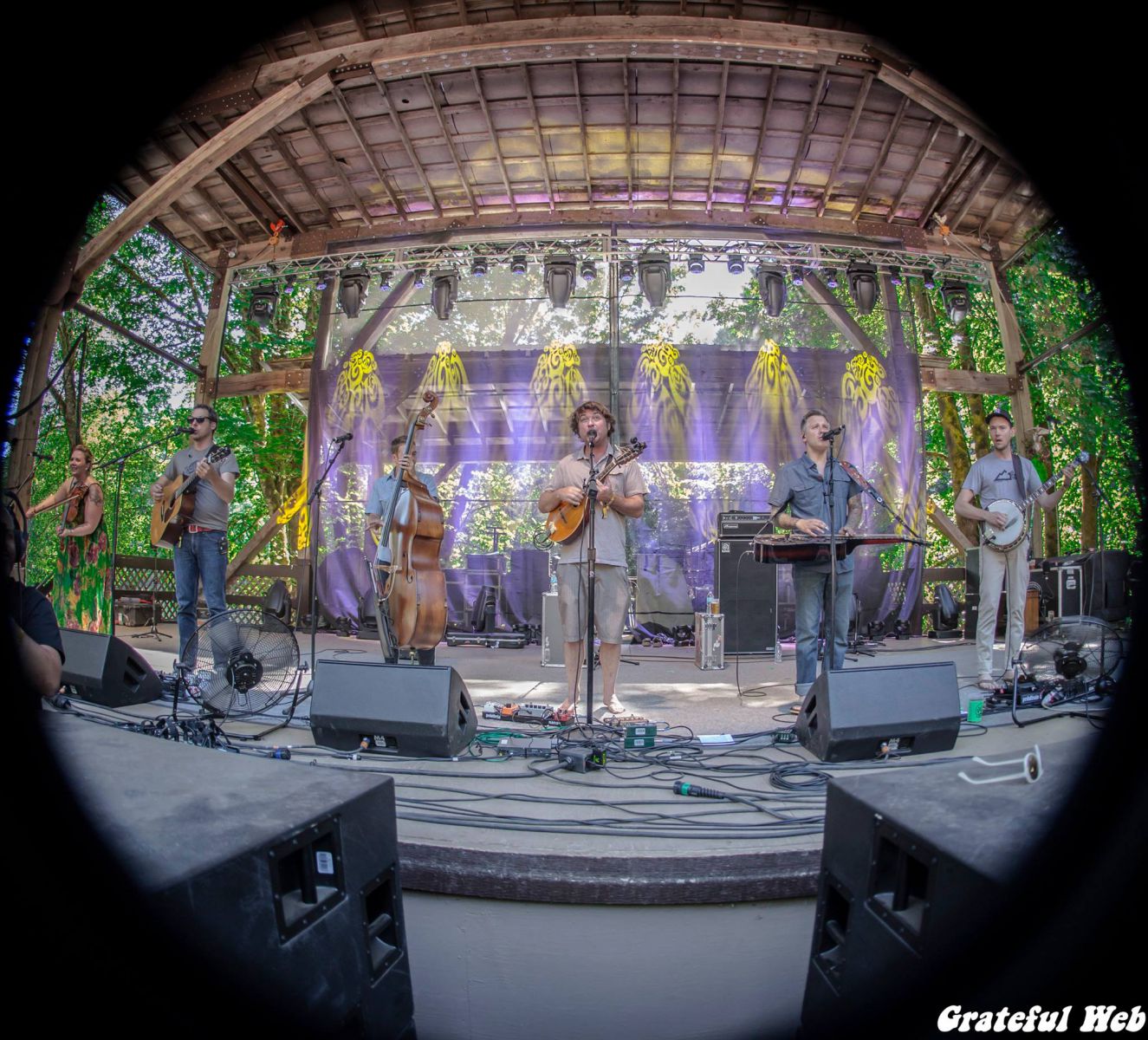
GW: That sounds awesome. Appreciate the suggestion. I guess that about wraps it up. That was great, Keller! I’m glad we finally got a chance to talk. I appreciate you giving me your time.
KW: My pleasure. Thank you so much for your time as well. I appreciate it very much.
“This ground on which the seed of love is sown—all graceful instruments are known.”





